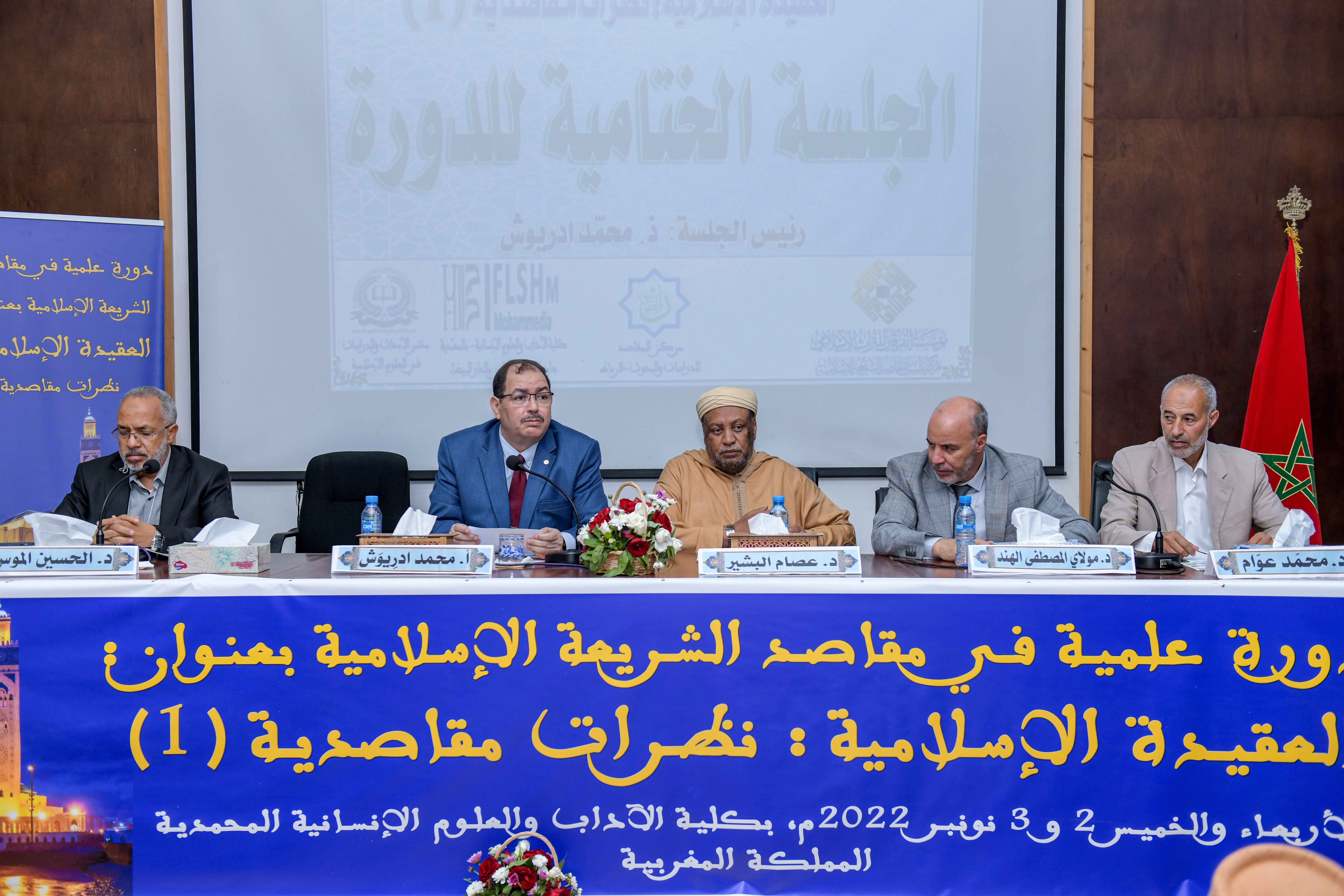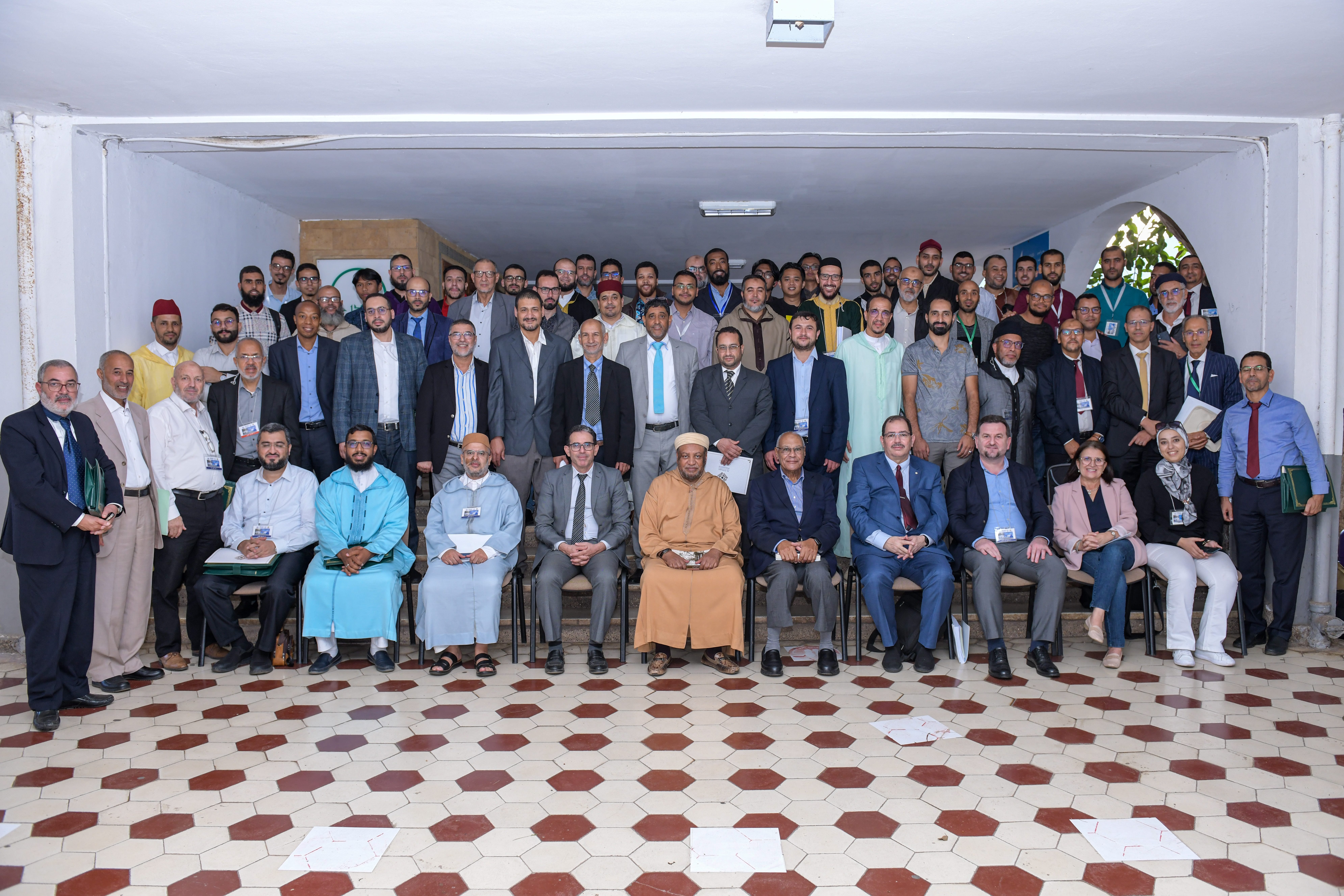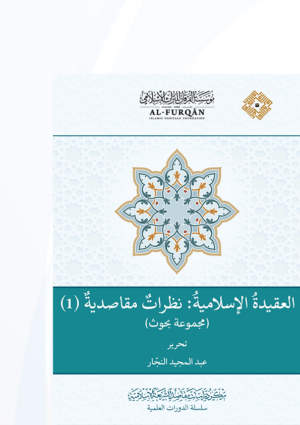On the welcoming premises of the Faculty of Letters & Humanities in Mohammedia, Morocco, the Centre for the Study of the Philosophy of Islamic Law at Al-Furqān Islamic Heritage Foundation, the Faculty of Letters & Humanities in Mohammedia, the Research and Studies Laboratory in Islamic Sciences of the same Faculty, and the Maqāṣid Research & Studies Centre (Rabat) organised the training course, “Islamic creed: Maqāṣid Perspectives (1)”, on 2-3 November 2022CE (7-8 Rabī‘ al-Awwal 1444AH). This was the first training course aiming to stimulate application of maqāṣid science in the areas of inquiry and issues of Islamic creed, given its importance in directing the creed lesson to attain the desired outcomes and aims.
First Day: Wednesday, 2 November 2022 – Opening Session
The first session opened with illuminating verses from the Glorious Qur’ān recited by Mr. Moulay al-Hassan Al-Barhoumi, followed by welcome speeches from the representatives of the bodies organising the training course.
The Vice President of Université Hassan II of Casablanca welcomed the attendance at the beginning of his speech. He explained the importance of examining the topic of Islamic creed, and exploring its objectives. Furthermore, stating that this is the noblest of sciences, most weighty in status, and most worthy of pursuit, because it relates to Allāh, the Almighty, His Names and Attributes; moreover, it is the key to the path to Him, and the foundation of His Commandments. He explained that the key issue in this science is its connection to objectives, due to their importance and link to the truth of faith, and because it aims to free the mind and thinking from confusion arising from the heart being empty of this creed.
The speech by the Dean of the Faculty of Letters & Humanities in Mohammedia followed. In a few words, he welcomed the guests, students, and scholars. He emphasised the critical importance of this encounter, given the great need for it, in the advances not only in the sphere of religion, but in all spheres of scientific research, which serve all humanity, and serve our Muslim nation; particularly, in preserving our identity, as is defined in its distinct reference, with its vision, identity, and culture.
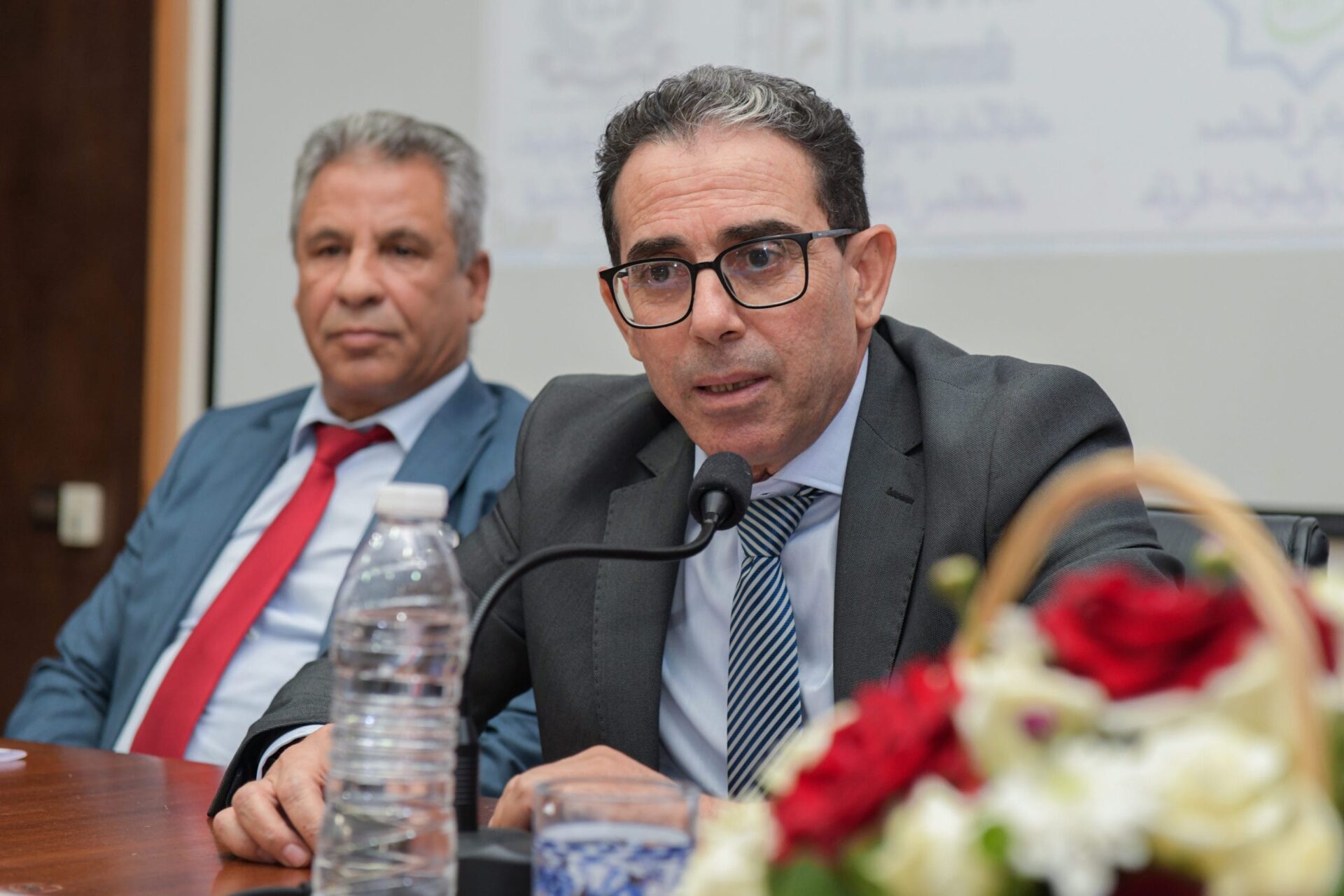

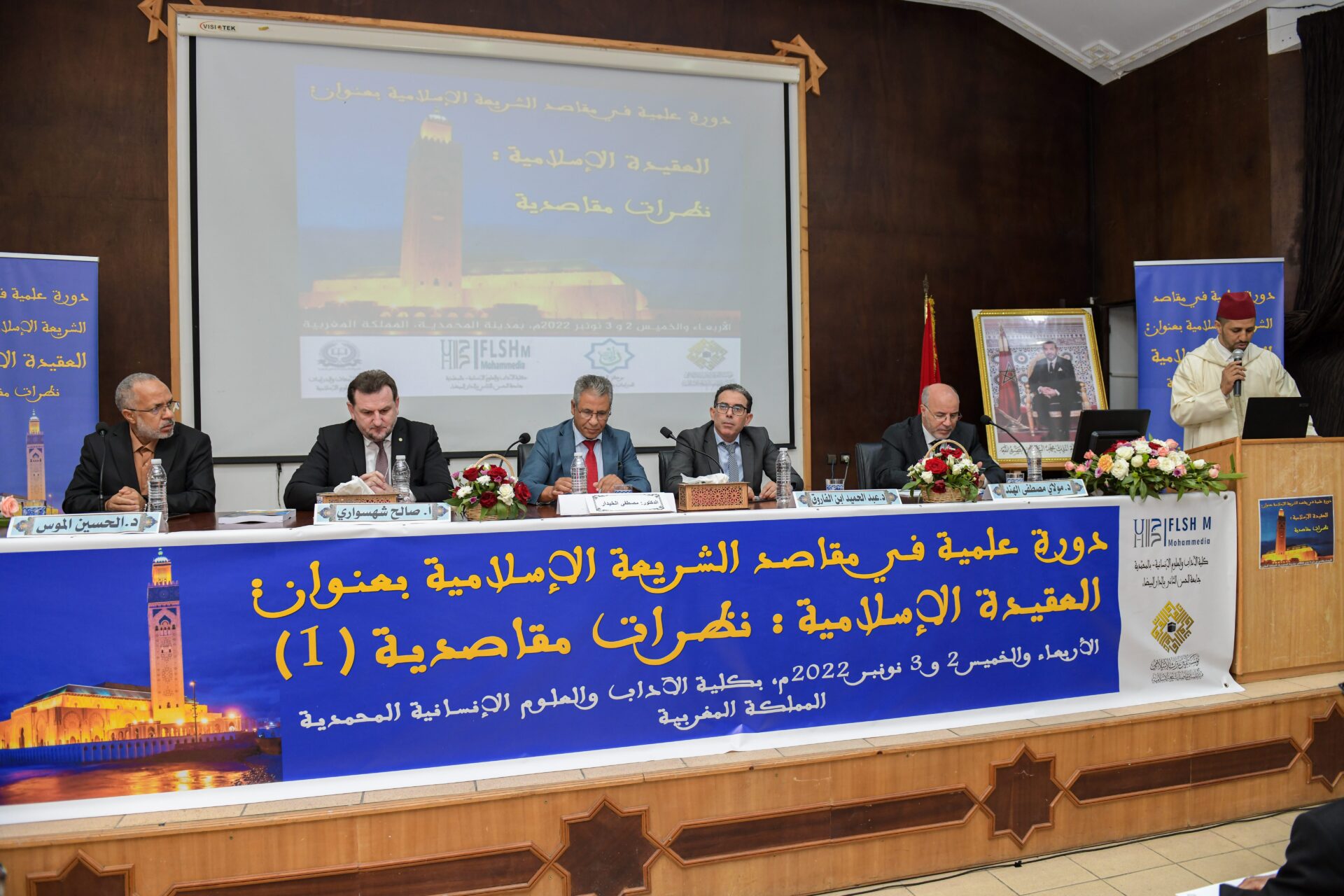
Subsequently, Mr Sali Shahsivari, Managing Director of Al-Furqān Islamic Heritage Foundation, welcomed the esteemed scholars, teachers, and students, expressing the greetings of Al-Furqān Foundation’s management, and Chairman , Mr Sharaf Ahmad Zaki Yamani. He explained the importance of this training course’s topic, focusing on the objectives of Islamic creed, due to its significant importance, in directing, correcting, and rationalising; it is considered the noblest of objectives, for which this noble religion came, as mercy for the entire world.
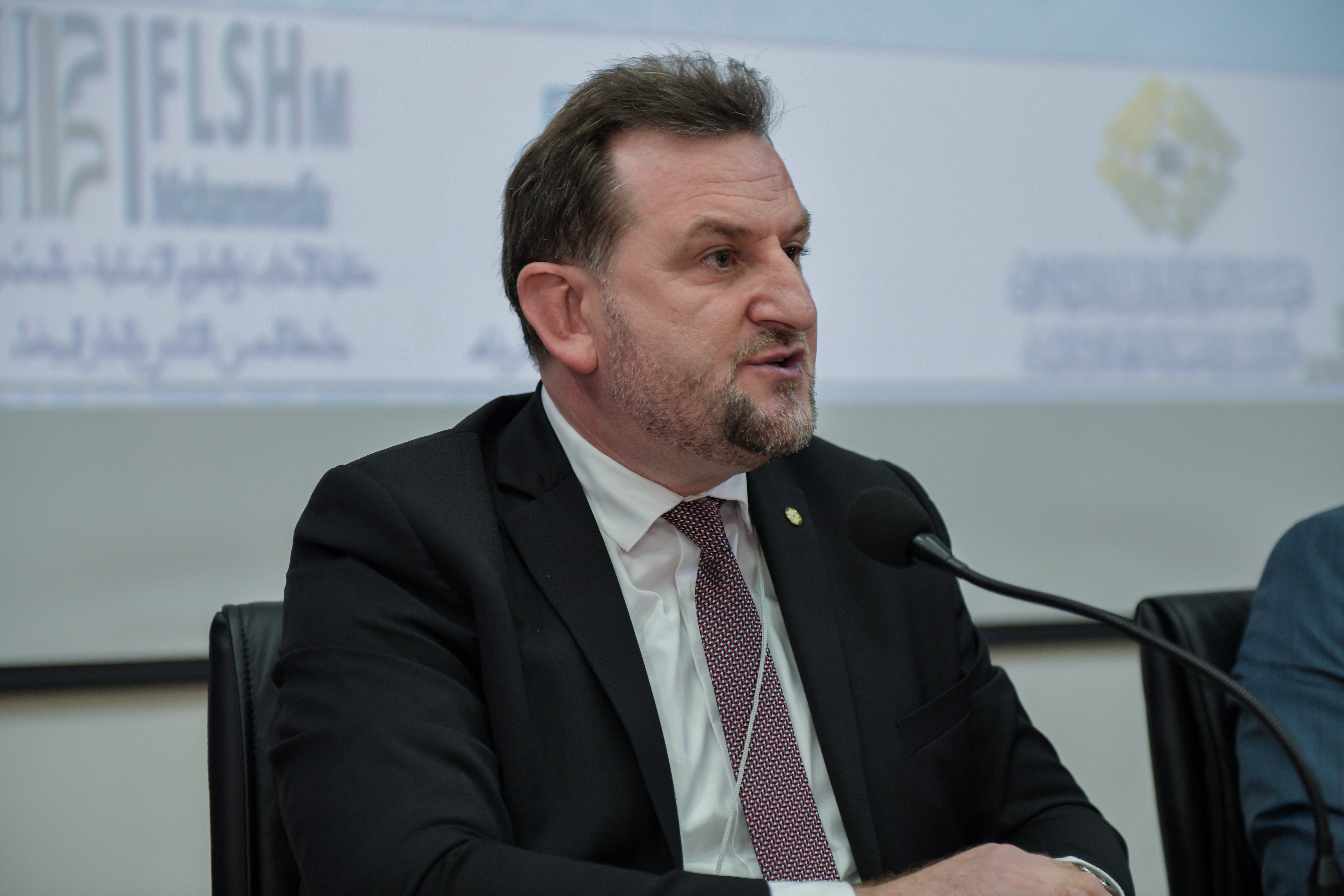
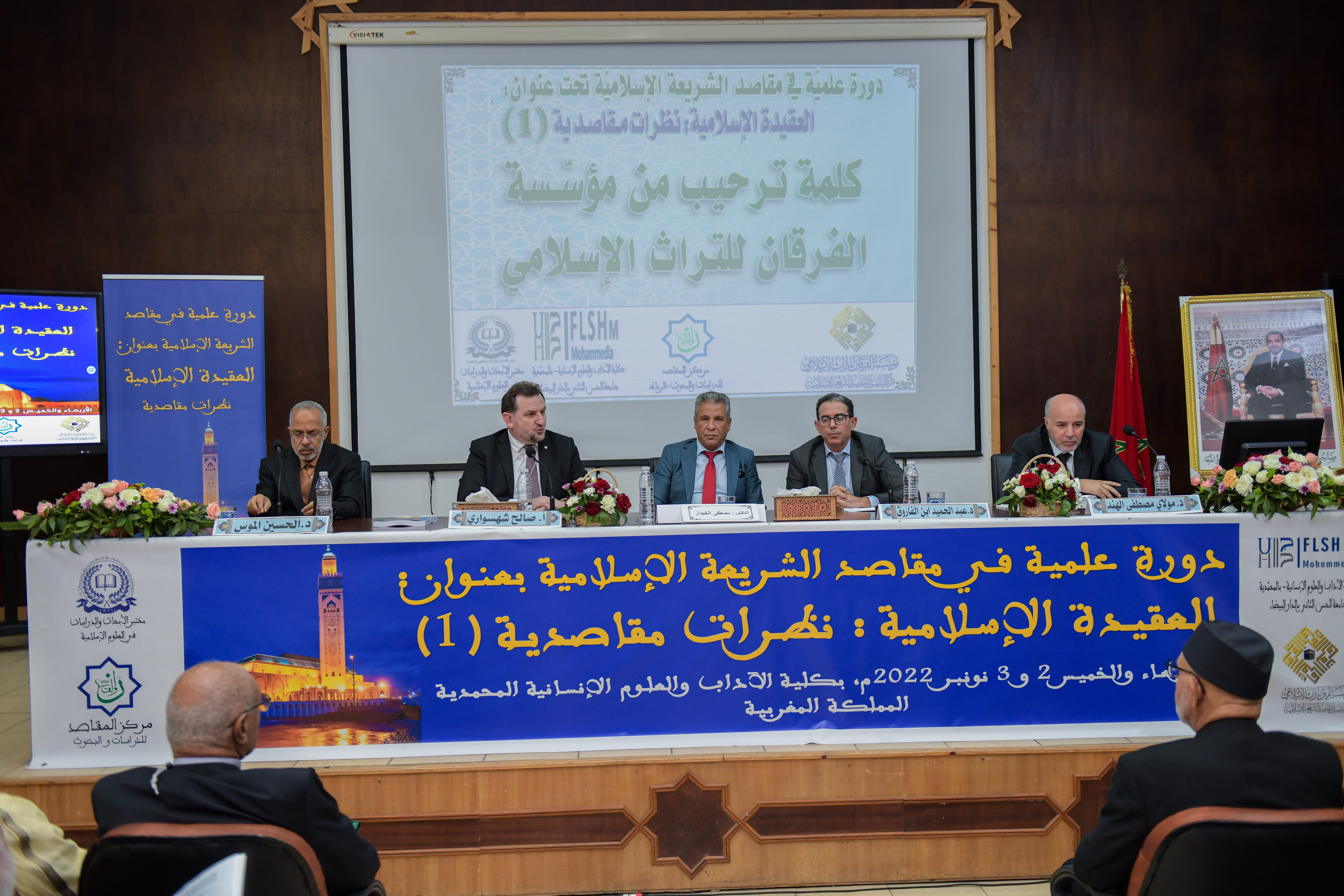
This training course is of importance, especially in our time, where materialism dominates at the expense of the spiritual, and form over substance, while nihilism dominates at the expense of meaning. Now we hear of atheist movements, even in Muslim lands. Hence, this training course came to examine the Islamic creed, which cements the meaning of life, and as an outcome, achieves the highest objective, which is the human being’s ennoblement by Allāh, the Exalted, Most High.
He was followed by the Deputy-Director of the Maqasid Research & Studies Centre (Rabat), Dr Al-Husayn Al-Mous, who in turn welcomed all the participants and organisers, at their head, Al-Furqān Islamic Heritage Foundation, and the Dean of the Faculty of Letters & Humanities at Mohammedia, and the Laboratory. He clarified the importance of the training course, representing a shining lantern lighting the way for teachers, students, researchers, so as to deepen research into this general topic, which will impact mankind, given the forced absence of spirituality and faith from social life. He emphasised that this training course will provide answers regarding the relationship between creed and Islamic law, and the importance of the objectives in this. He concluded his speech by thanking all those who had supported this training course.
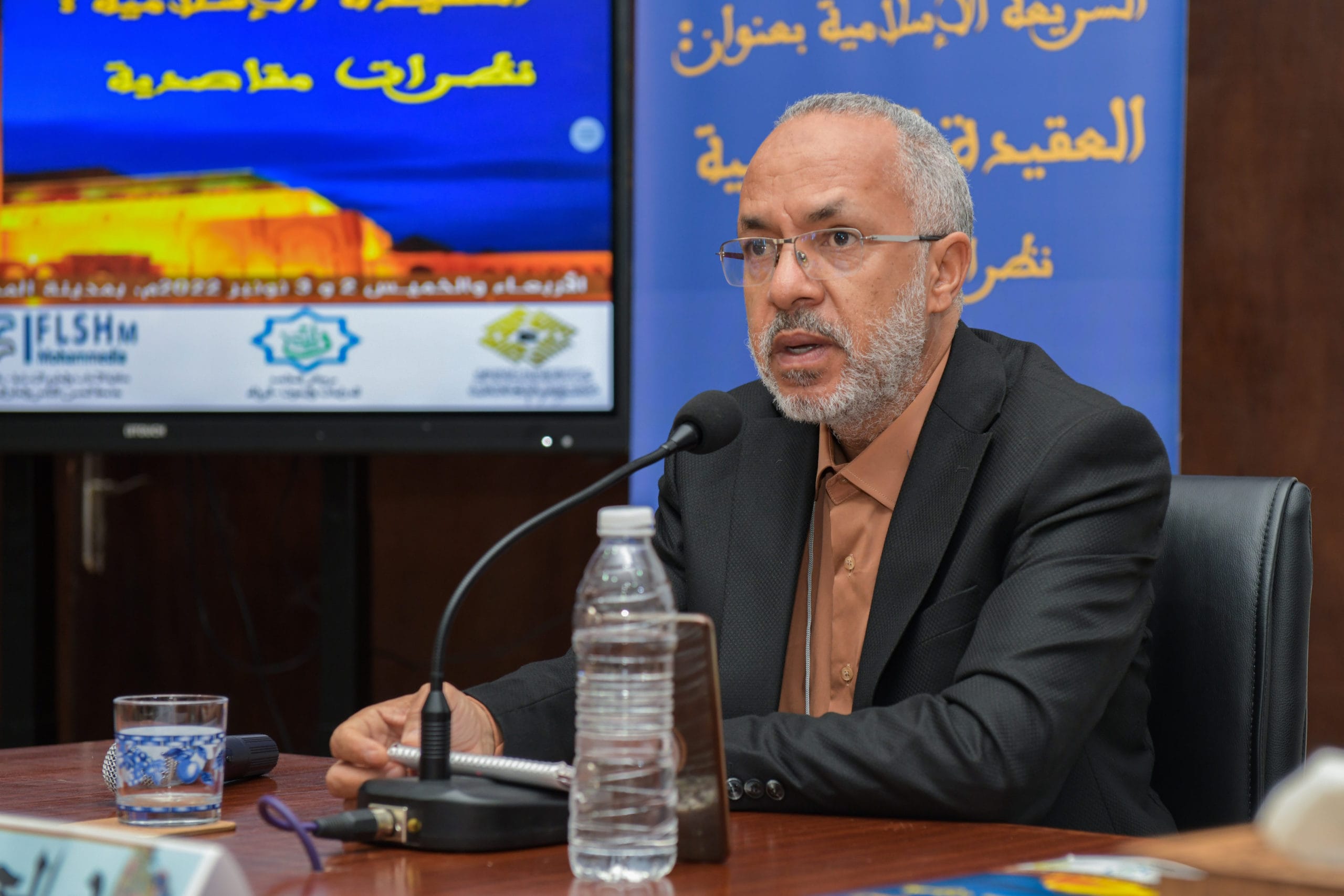
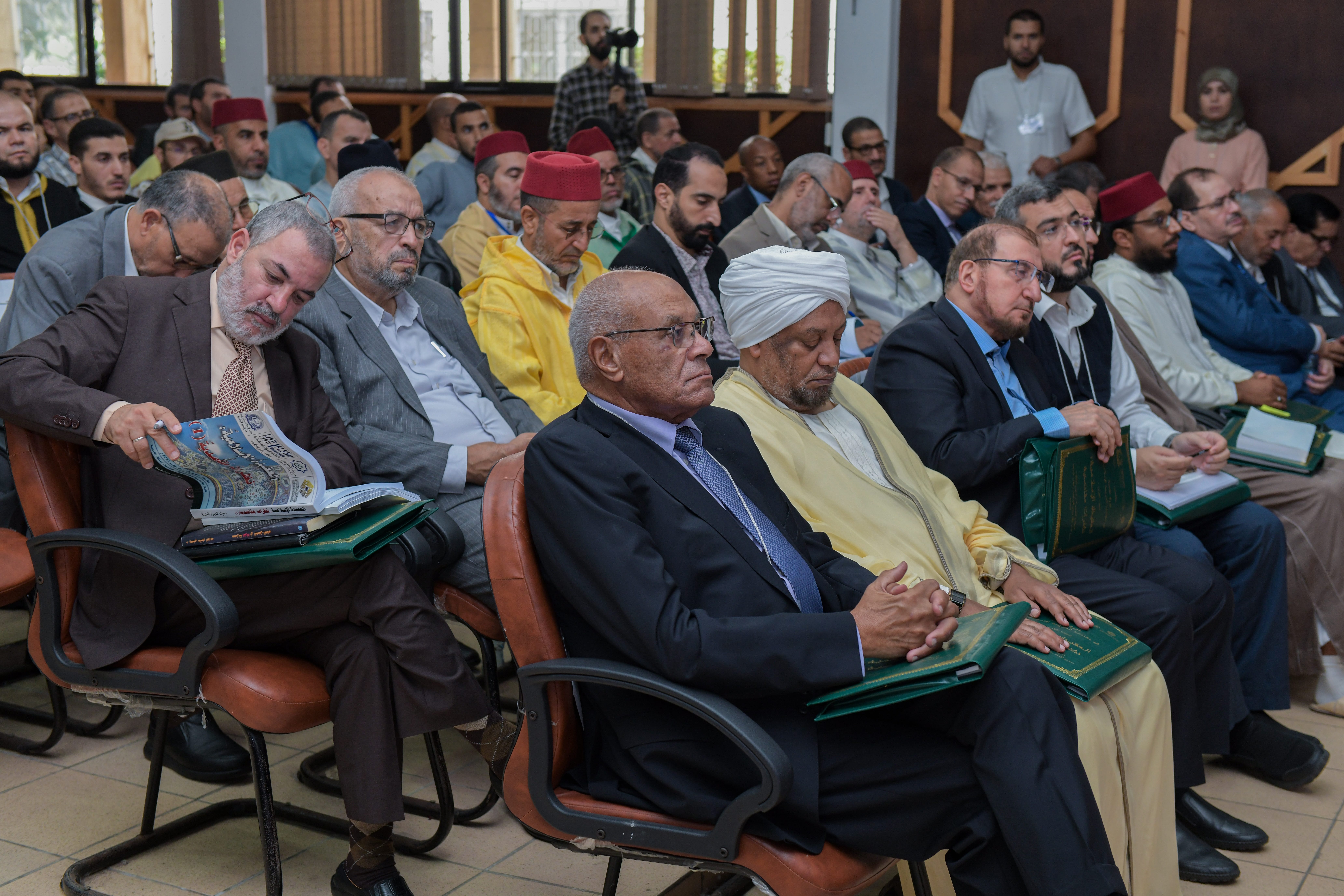
Dr Moulay al-Mustapha al-Hind then spoke on behalf of the Research and Studies Laboratory in Islamic Sciences. He welcomed the attendance, the organising bodies, the audience and scholars. He asserted that the Laboratory was contributing to this training course with the conviction of the laboratory research teams that objectives-based thinking has the methodological and epistemological capacity to answer many burning questions, and many concerning issues relating to some aspects of Islamic sciences; most particularly, the novel developments witnessed in contemporary Islamic thought. He clarified that the objectives-based examination may well rise to become the duty for the moment when related to the matter of studying Islamic creed, so long as the expertise is there. He concluded his speech by thanking all the contributors and participants, particularly the scholars, the University Presidency, the Faculty Deanship, and the organising bodies.
In the context of elucidating the importance of the topic of the training course, the following interventions addressed the matter.
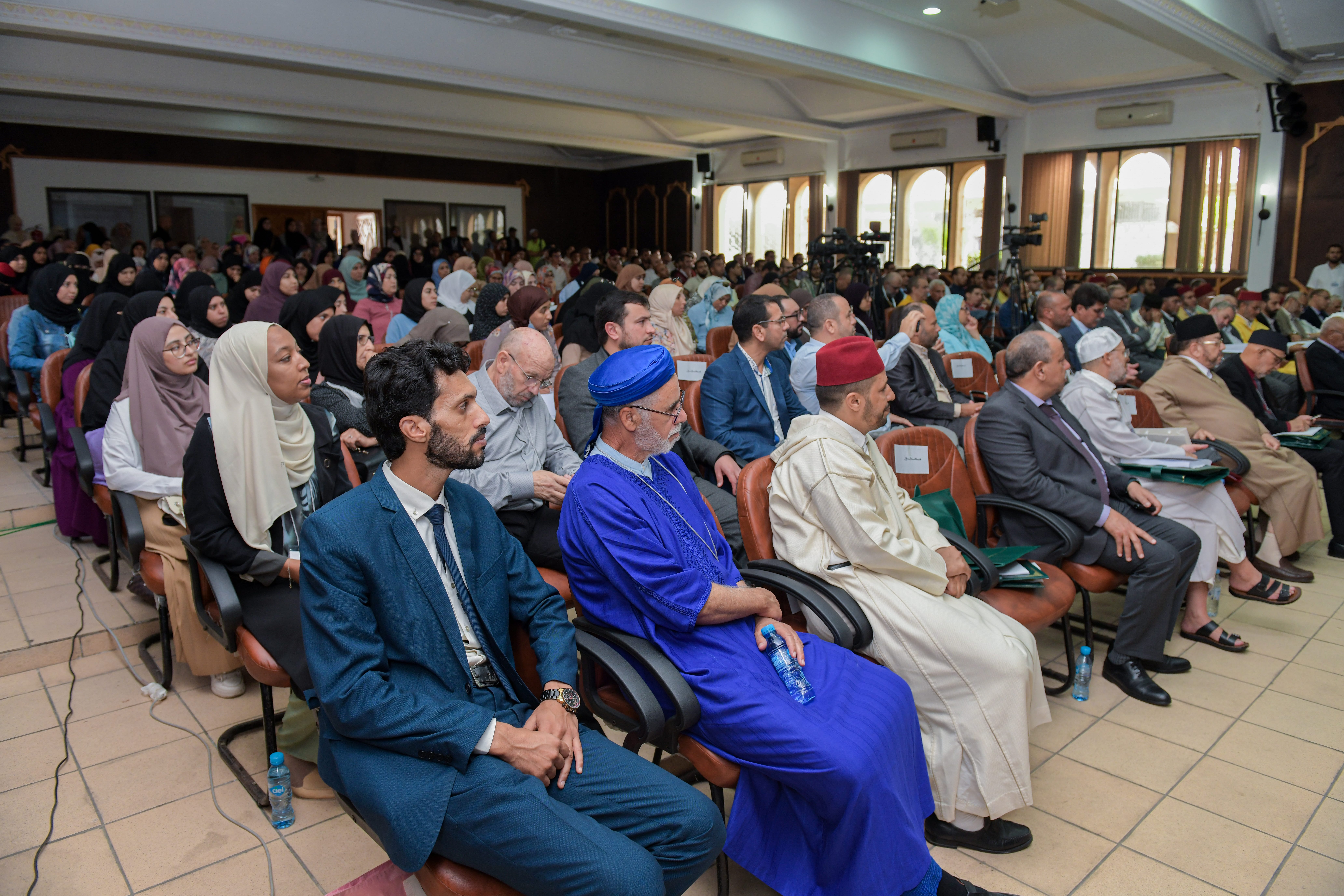
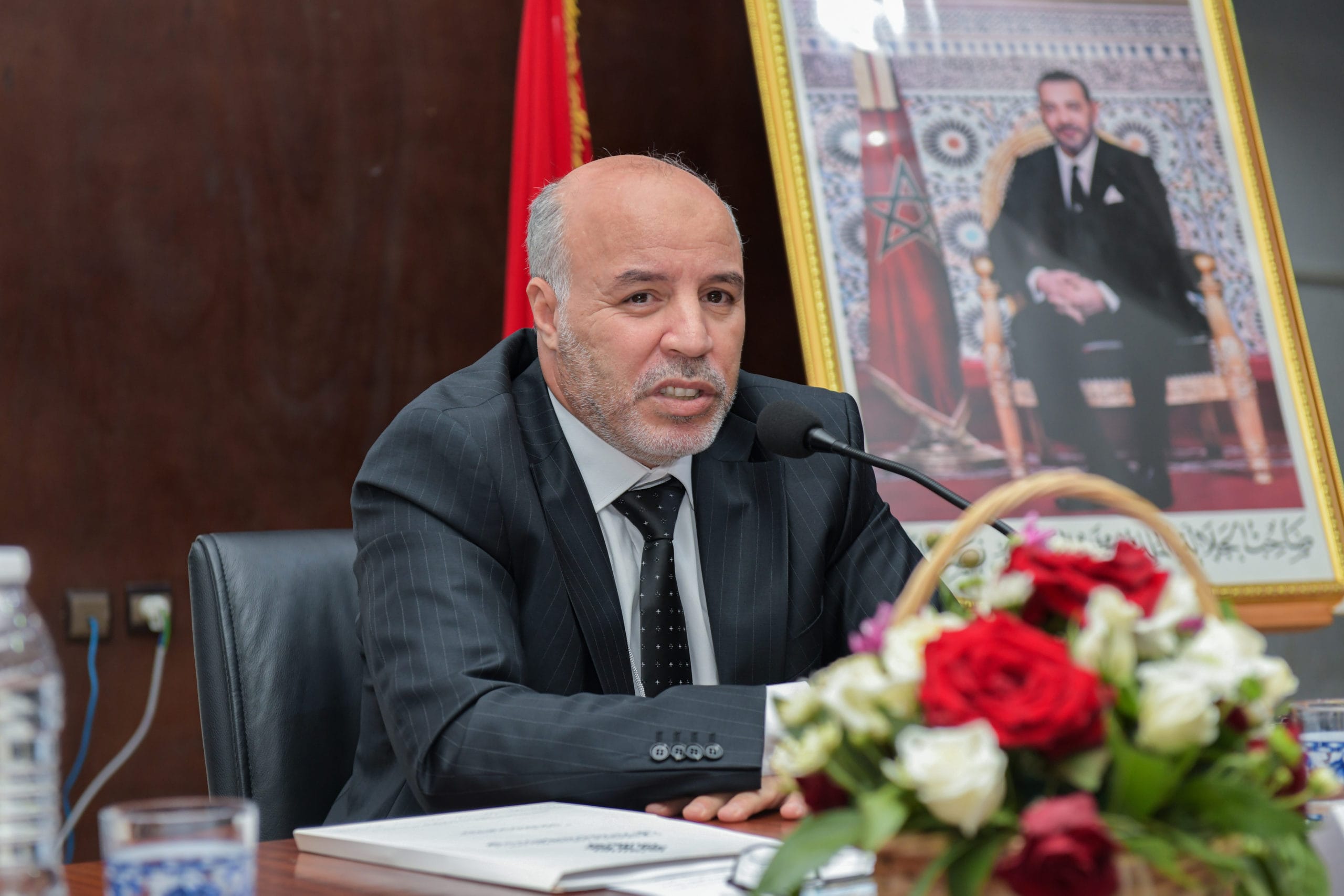
The first intervention: Dr Mohammad Salim al-Awwa
Dr Mohammad Salim al-Awwa spoke about the origin from which everything relating to the Islamic nation stems; this origin is the articles of creed. If these are sound, then everything else by default would be sound, and if these articles are corrupted, then everything else would by the same token be even more corrupt. My statement that articles of creed are sound or corrupt does not imply that these are sound or corrupt in themselves. Indeed, the creed received from Allāh, the Almighty, by way of our Prophet Muḥammad, peace be upon him, is correct and sound by all measures, and cannot be impugned in any way; rather soundness or corruption relates to the manner of human reception of this creed.
He also emphasised that the intent of soundness or corruption of creed is from the perspective of our management of it. Creed is the yardstick to judge our deeds; similar to jurisprudence that judges soundness or corruption, according to the harmony of our deeds and circumstances with the creed principles, in which Allāh, the Almighty, made obligatory upon us to believe. Dr al-Awwa considered that this training course represents a major milestone with respect to the past examination of the objectives of our creed, based on the fact that correctness or error has other ramifications.
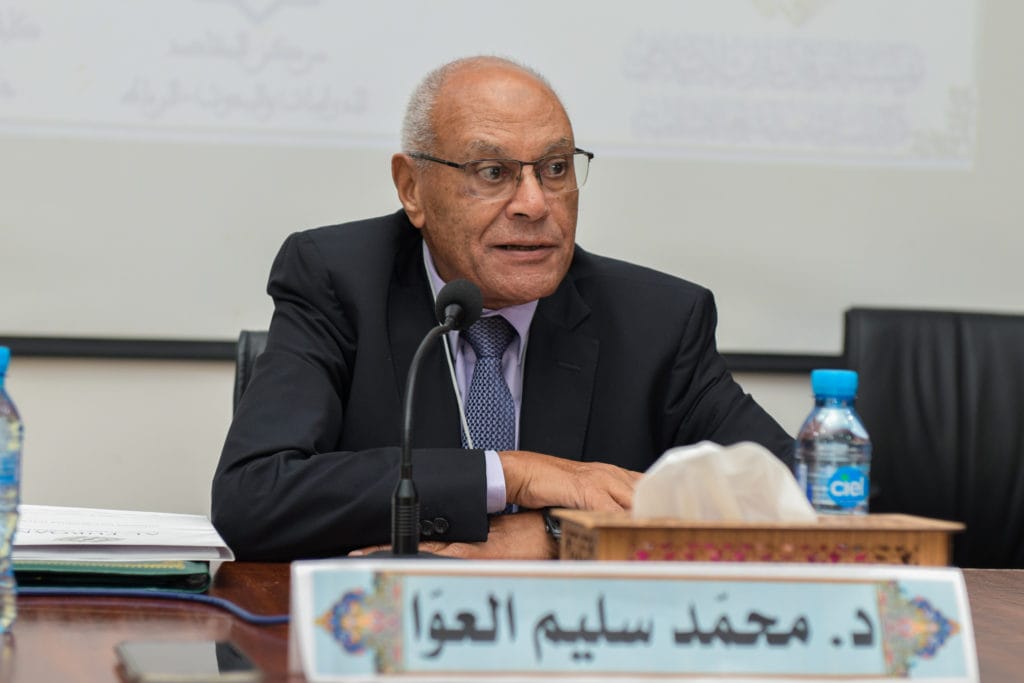
He stressed that this topic is of extreme importance, and from another perspective, highly sensitive, because it relates to the first principle of our principles. Scholars are in consensus over the statement by Ibn Khaldūn in that articles of creed are the origin and source of all obligations. He explained the reason behind starting with the other Islamic law objectives rather than creed, due to the difficulty of the topic. Hence, the beginning was on those matters that are unanimously accepted, until people became accustomed to speak about these objectives, even if they differed upon them. Subsequently, they could discuss the objectives of the articles of creed. He explained that the objectives of creed are no different from the objectives of Islamic law, , as all these objectives are interconnected.
The second intervention: Dr Issam al-Bashir
He began by saying that creed came to unify the Worshipped, and unify the worshippers in the reality of the Muslim nation, which is afflicted by exchange of accusations of nonbelief, evil innovation, and heresy. Moreover, the terms that were hoped would unify the Muslim nation had instead become a way for dividing it, such as the term, (ahl al-Sunnah wa al-jamā‘ah), and concurrently expanding the Prophetic tradition (ḥadīth) speaking about the division of the Muslim nation. This tradition attracted much commentary from erudite scholars; some of whom rejected this tradition, while others have judged it good (ḥasan) due to the multiple chains of narration… However, they differed on its exegesis, detail, and application.
Dr Issam considered that the results of the fragmentation was lethal to the Muslim nation; moreover, the issue of accusations of disbelief, and the issue of loyalty and disavowal (al-walā’ wa al-barā’) are connected to the essence of creed. While the imbalance in grasping the concept of Divine right to govern (ḥākimiyyah), which in one aspect is related and connected to the Divine Self, while also related and connected to human effort arising from exerting creative juristic effort (ijtihād) in order to fit the guidance of religion to reality on Earth.
Dr Issam established that the highest objective of creed is to introduce and educate regarding the Worshipped, the Exalted, Most High, in His Noble Attributes and Names, in the descriptions of majesty, beauty, and perfection. He criticised the curricula in universities teaching creed, in which the matter of creed had turned into one of dialectics and emotionless philosophies that do not stimulate, motivate, or raise effectiveness; these are contrary to the objective for which this construct of creed had arisen. Our scholars used to say: knowledge is two kinds: knowledge of God, and knowledge of God's commands; one may know of God's commands, but is not cognisant of God; one may know of God, but is not cognisant of God's commands. Knowledge of God's commands is to have a grasp of His Legislation, religion, command and prohibition, lawful and unlawful. Knowledge of God is a fruit of the science of creed, which results in love for God, fear and hope in Him, and satisfaction with His Decree, aspiring to meet Him, and enjoy closeness to Him, the Exalted, Most High.
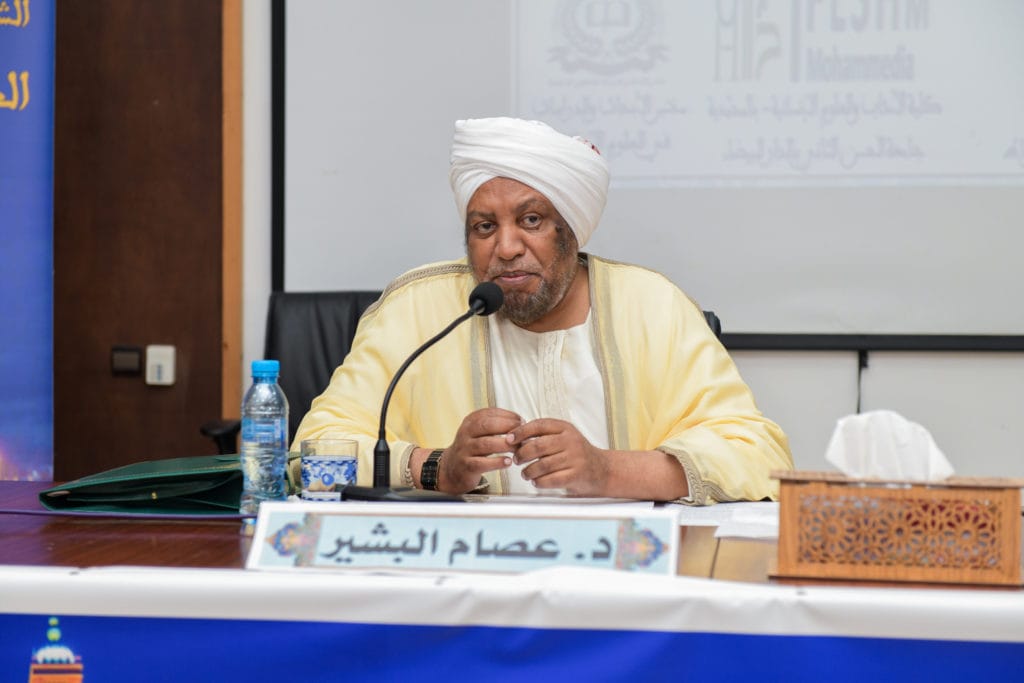
The third intervention: Dr Moulay al-Mustapha al-Hind
He began his intervention by stating that the topic of objectives of creed is a hazardous and difficult epistemological issue. He discussed the issue of causation or rationalisation (ta‘līl), which in the formative period of the Islamic sciences represented a methodological and epistemological problem. It exhausted Islamic thought quite considerably, whether relating to the school of legal theory (uṣūl) or the school of theology (‘ilm al-kalām). The result was the appearance of the science of objectives. Despite the matter of evidencing based on the objectives becoming accepted among the majority of scholars, evidencing in ritual worship, and their objectives has taken the discussion among them in its sharp form full circle to the beginning; given that this is a sensitive area, where effective cause (‘illah) and going beyond the effective cause (ta‘diyyah) may not be applicable.
Dr al-Hind expressed his great concern around entering into the arena of objectives of creed, because the discussion on causation (ta‘līl) is a discussion of creed and its requirements, whether the matter relates to actions or rulings or both, or the matter relates to legal theory or theological consideration, or both. The lecturer mentioned that the majority of scholars have been inclined to address the objectives of creed from the perspective of purification (tazkiyyah) rather than from the perspective of causation. He considered that to be the least problematic applications of causation, which may be adopted, so as to avoid pitfalls and fatal areas, which challenge this difficult objectives-based matter.
Dr al-Hind emphasised that speaking on the history of the objectives of creed was undertaken following this singularly edification choice, and so it did not become an independent discipline; unlike the objectives of Islamic law , which matured through cumulative and creative effort. According to Dr al-Hind, this is due to the absence of methodological and epistemological rules for the study of the science of creed, as a specific scientific domain, and so it did not receive the same attention as other domains of Islamic science..
He concluded his speech with a set of brief observations:
• Islamic creed has become an independent scientific discipline.
• Highlighting the weighty presence of the objectives of creed among a large number of the past and subsequent generations of the Muslim nation; however, these addressed the behavioural aspect.
• The structural unity of the Noble Qur’ān and Prophetic Sunnah encompasses many objectives of creed , while emphasising the most important, which is the objective of belief and ritual worship
• Th eobjectives of creed in the Noble Qur’ān form part of general objectives-based causation, which is indispensable given the inherent interests of mankind.
• The discussion of objectives of creed in the Noble Qur’ān and Prophetic Sunnah are at the formative stage, and others courses will follow, based on a robust methodology.
First Session chaired by Dr Mohammad Salim al-Awwa
The first session followed the opening, beginning with the topic by Dr Mustapha Qartah, titled “Towards a methodological and epistemological introduction to the objectives grounding and governing Islamic articles of creed”. The researcher spoke extensively on this topic through an introduction and six areas of enquiry. In the introduction, he presented some of the motives that compel study of the objectives of creed.
In the first area of enquiry, he discussed “the objective of articles of creed in securing human rectitude for a sound civilisation”. The second area of enquiry was about “the objective of articles of creed in achieving knowledge of Allāh, the Almighty”. In the third and fourth areas of enquiry, he explained the huge interests secured through the knowledge of Allāh, the Almighty, and the remaining pillars of faith. The sixth and last area of enquiry was dedicated to elucidating the Divine Legislator’s objective from the creed discourse, namely to ensure understanding is conveyed, which is the higher objective that frames this discourse.
Dr Omar al-Qushairi commented on the paper, based on notes and advices. He emphasised that what can be of benefit from the paper is the distinction between science of creed and creed. He addressed the defects, and deviation existing in theology due to the large amount of argument and debate. The author had highlighted the important axioms in objectives-based grounding according to a methodology, which “defines principles and foundations”.
The reviewer highlighted some points of error, in that the general objective of creed science is to purify conviction in the religious principles in the heart of the believer. He concluded his review saying that the most important benefits derived from clarification in the objectives of creed after securing knowledge, is securing the combination of the objectives of ensuring understanding, and acting in accordance with that understanding.
Subsequently, Dr al-Hasan Shahid presented his paper titled “The universal creed objectives, and the means to discover them”. He began his paper with four governing introductions; the first on the basis of the examination. The second on distinguishing between the objectives of creed and those close to them. Thirdly on the study hypothesis and question. Fourthly on examining the pathways to uncovering the objectives of articles of creed.
Dr Shahid based his thesis on the first area of enquiry, the universal arrangements for creed and its objectives. Under this heading were: first, the frame for the ennoblement (al-takrīm) universal; second, the frame for the purification (al-tazkiyyah) universal; and third, the frame for the vicegerency (al-istikhlāf) universal.
The second area of enquiry was on the means to discover the objectives of creed, in which he addressed the ways and means by which to discover and identify the objectives of creed , dividing these into two; the first being the partial means.
Dr Fareed Shukri commented on this paper, where he commended its treatment of the universal objectives, and the means of discovering them. He mentioned that the study of objectives is a study of meaning. The reviewer also highlighted important points to enrich, and correct the paper, where he identified a shortcoming in the ambiguity and lack of distinction, as well as the areas of connection and separation, between creed (‘aqīdah) and faith (īmān).
This was followed by the paper by Dr Mohamed Sbihi, who chose the title “The objectives of Divine things (ilāhiyyāt) through the book of faith (Kitāb al-īmān) and monotheism (Kitāb al-tawḥīd) in Ṣaḥīḥ al-Bukhārī”. He stated in the introduction that he constructed his paper on the problematic question regarding the extent to which Imām al-Bukhārī addressed the spirit, secrets, and aims of creed relating to the Divine, in the books of faith (Kitāb al-īmān) and monotheism (al-tawḥīd) in his Ṣaḥīḥ.
Dr Sbihi divided his paper into three areas of inquiry. The first was dedicated to the objectives of Divine matters in the realm of emotion and senses. The second dealt with the objectives of Divine matters in the realm of practice and behaviour. The third addressed the objectives of Divine matters in the realm of consequences and penalties.
He concluded at the end that al-Imām al-Bukhārī “did not restrict himself in Divine things to the moulds of words and forms of particulars, but exceeded them to spirit and secrets, and that the objectives of Divine matters vary, whether by text (naṣ) or content, and so on; all this was an act of creative scholarly effort (ijtihād), in evidencing (tadlīl) these objectives”.
Dr Mohamed Aouam commented on the paper, explaining the importance of the examination of the wisdoms, objectives, and secrets of Islamic creed. He then revealed the methodological connection between the areas of inquiry addressed by Dr Sbihi, where he proposed that these matters are connected to one another. Dr Mohamed Aouam praised the novelty and renewal in the paper, where the biographies intimate as to the objectives, through hint and indication. In this regard, the reviewer also made some methodological observations on the paper, namely the excess of quotes, citations, and digressions, which weakened the examination of the objectives of Divine matters from al-Bukhārī’s perspective.
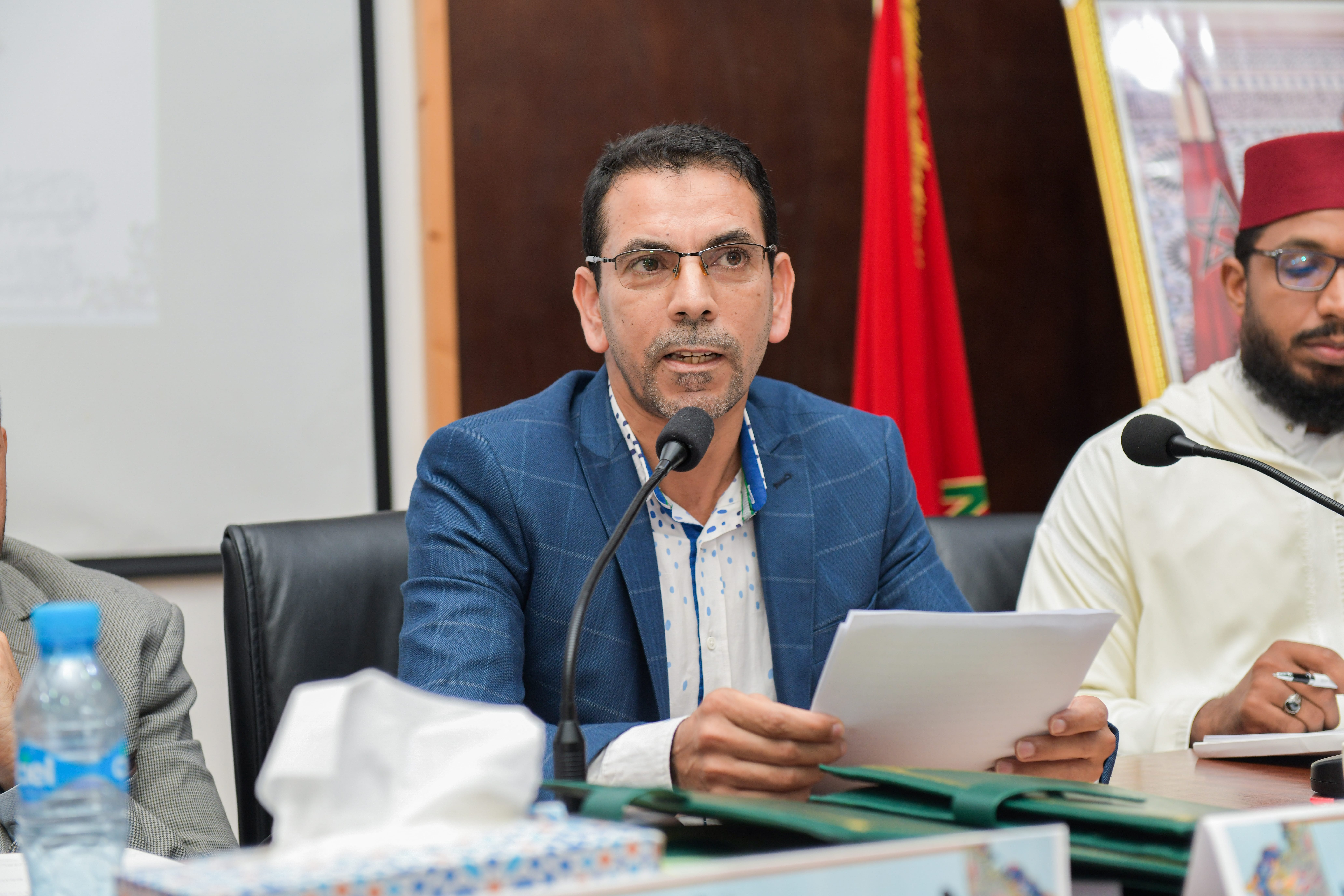
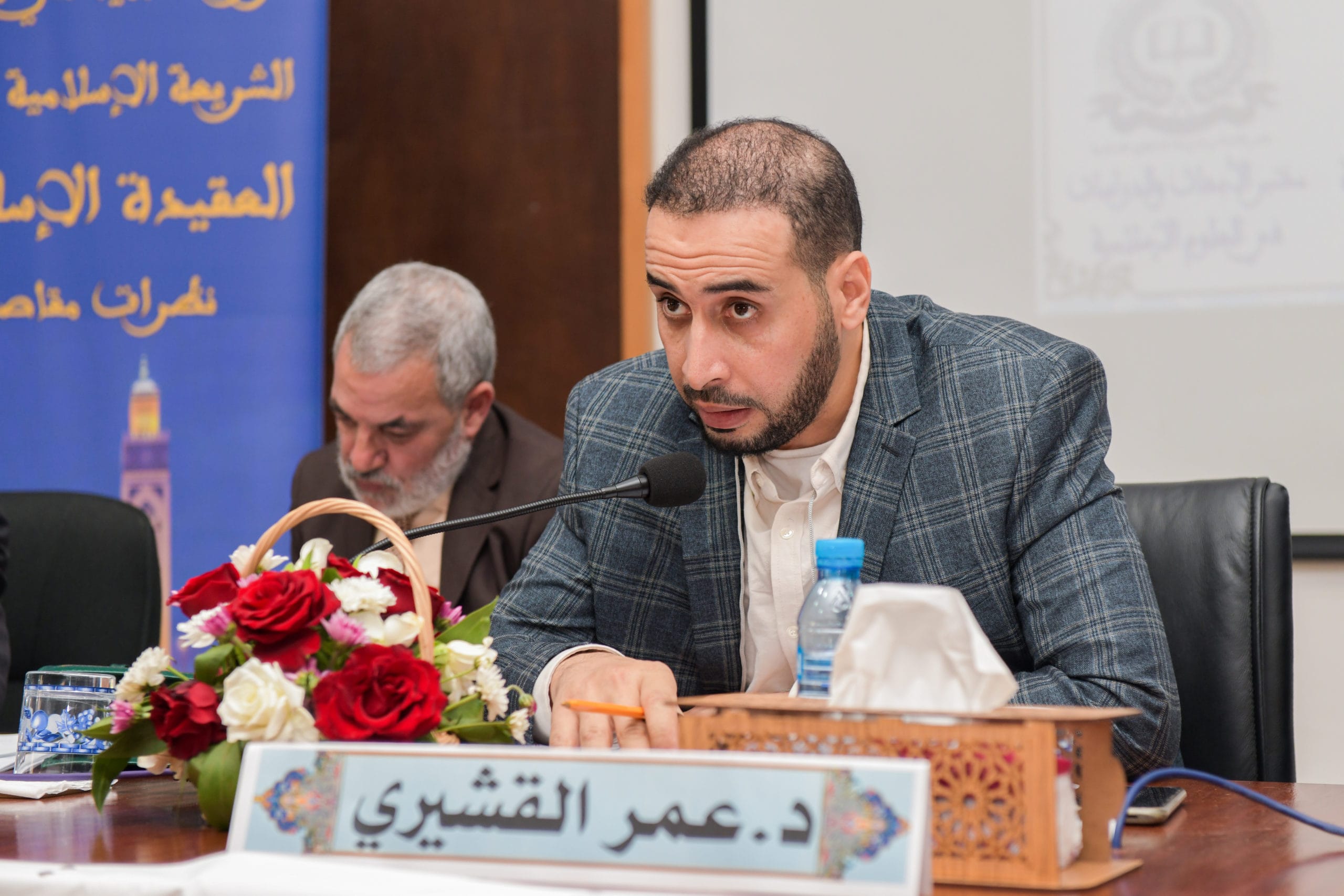
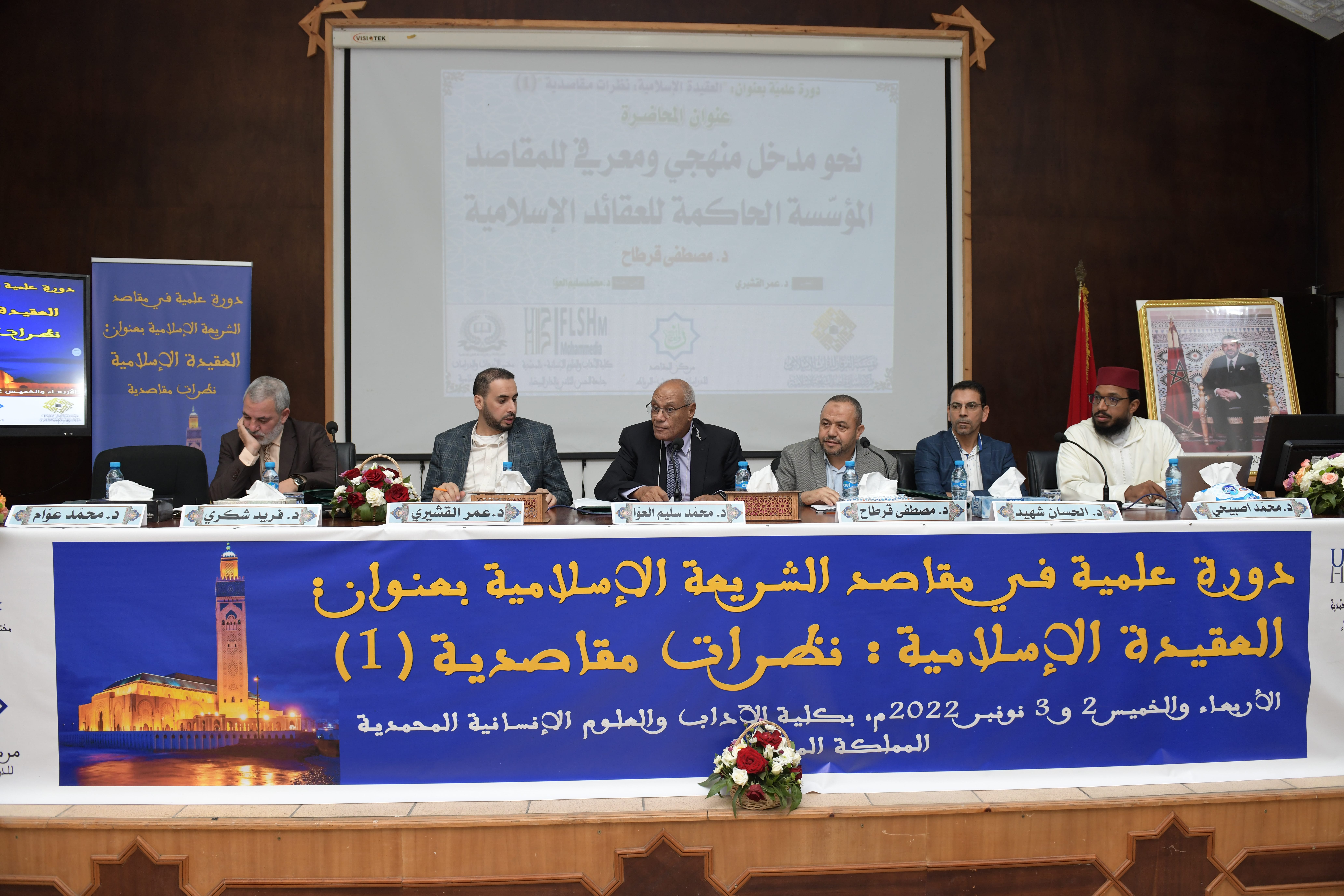
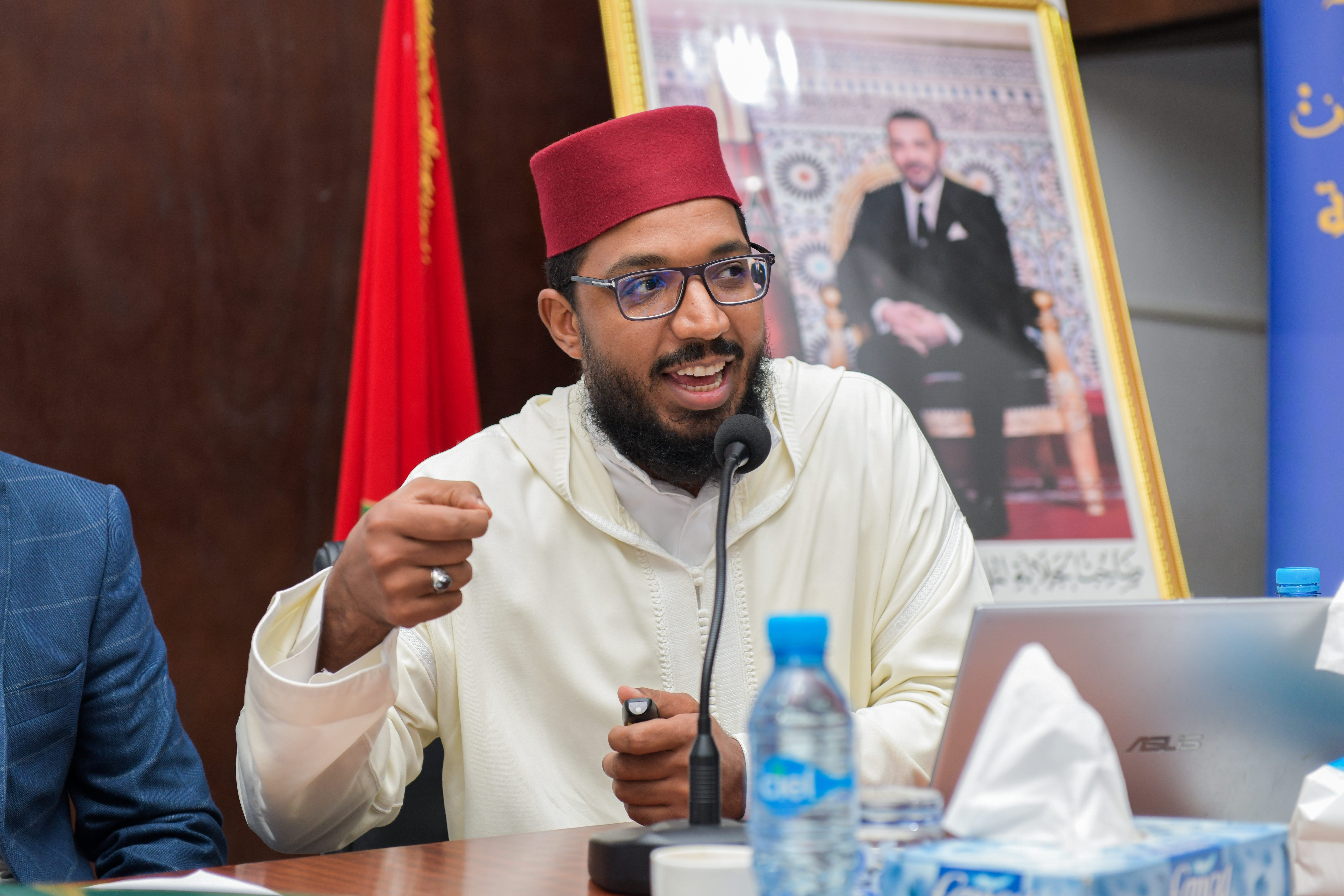
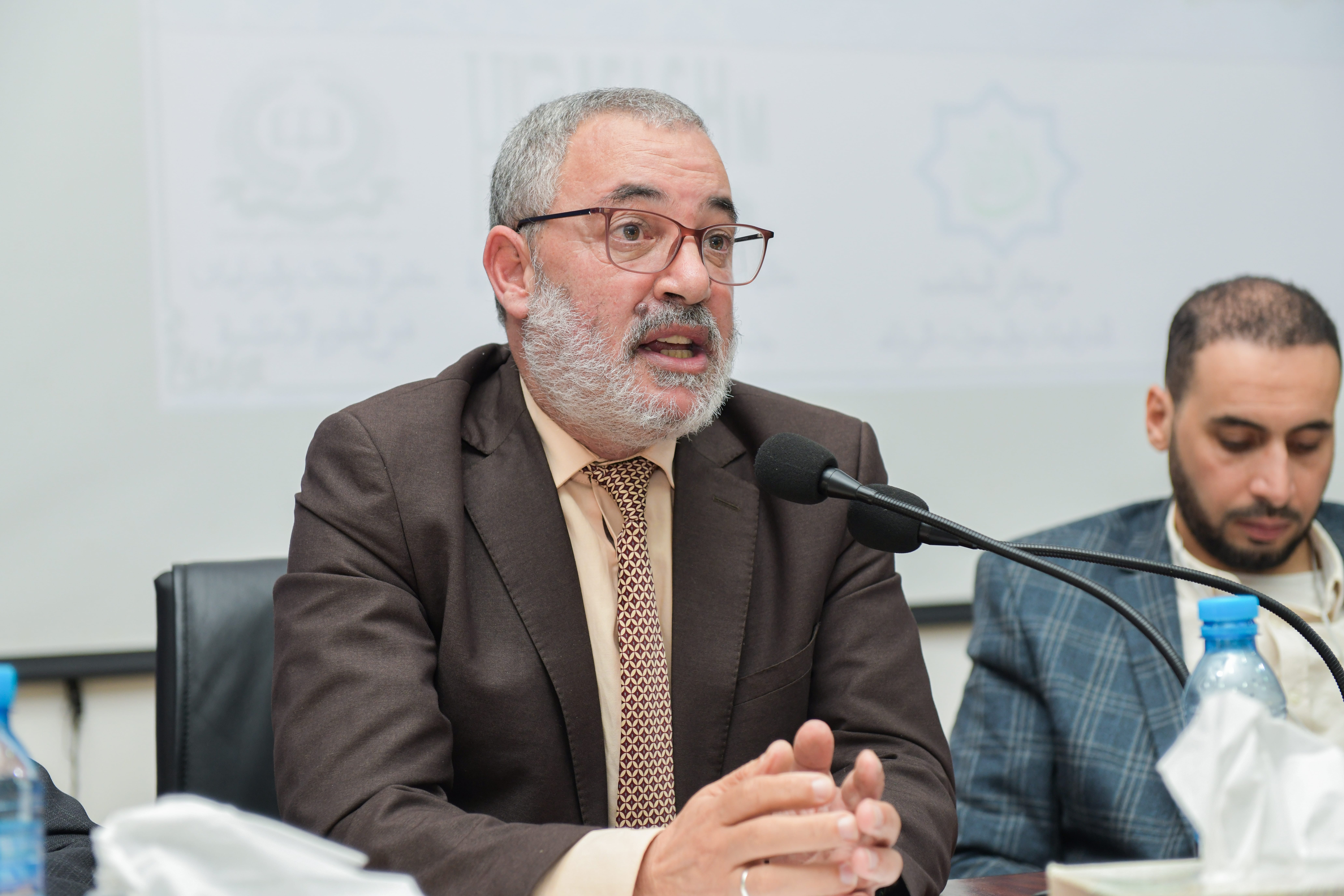
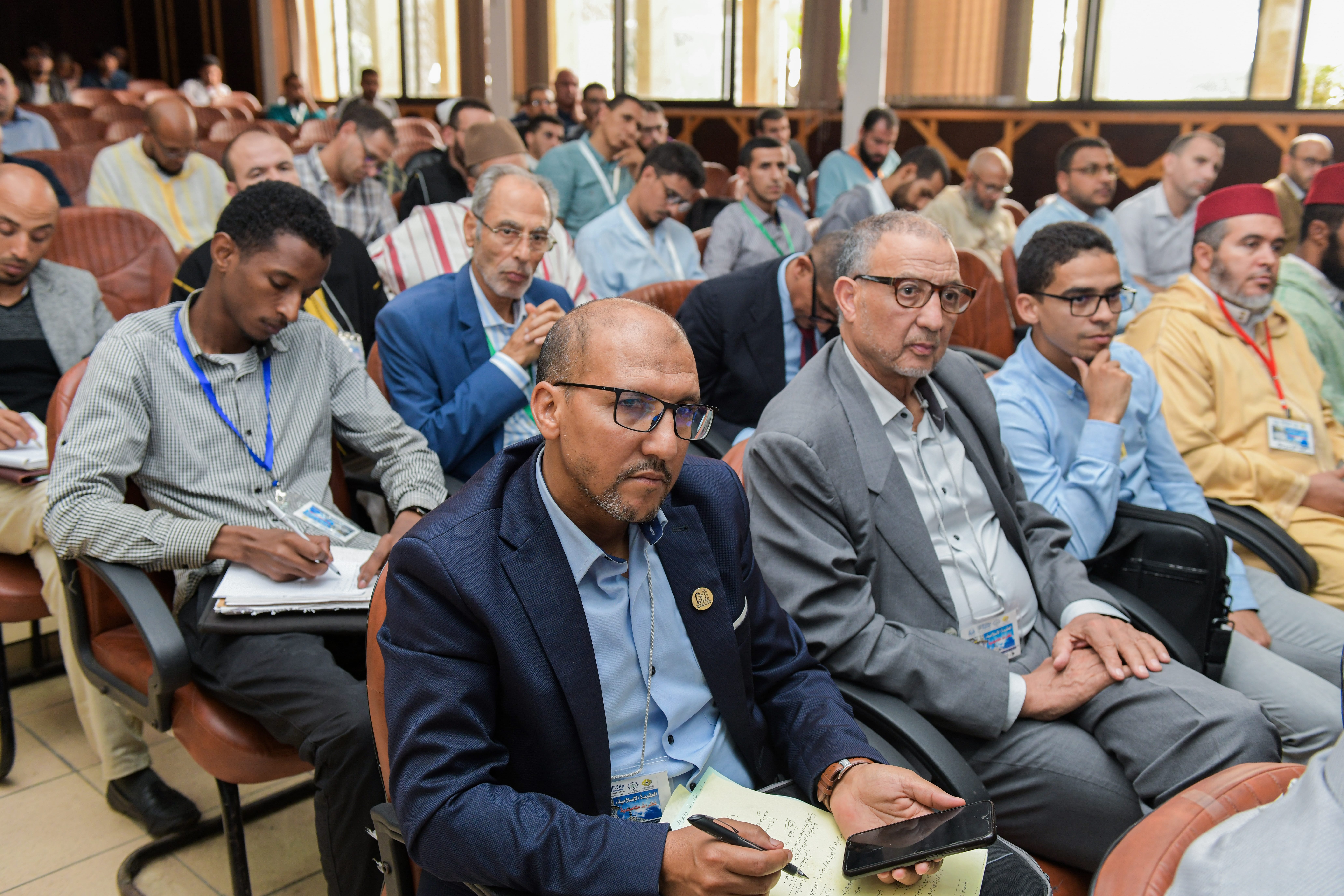
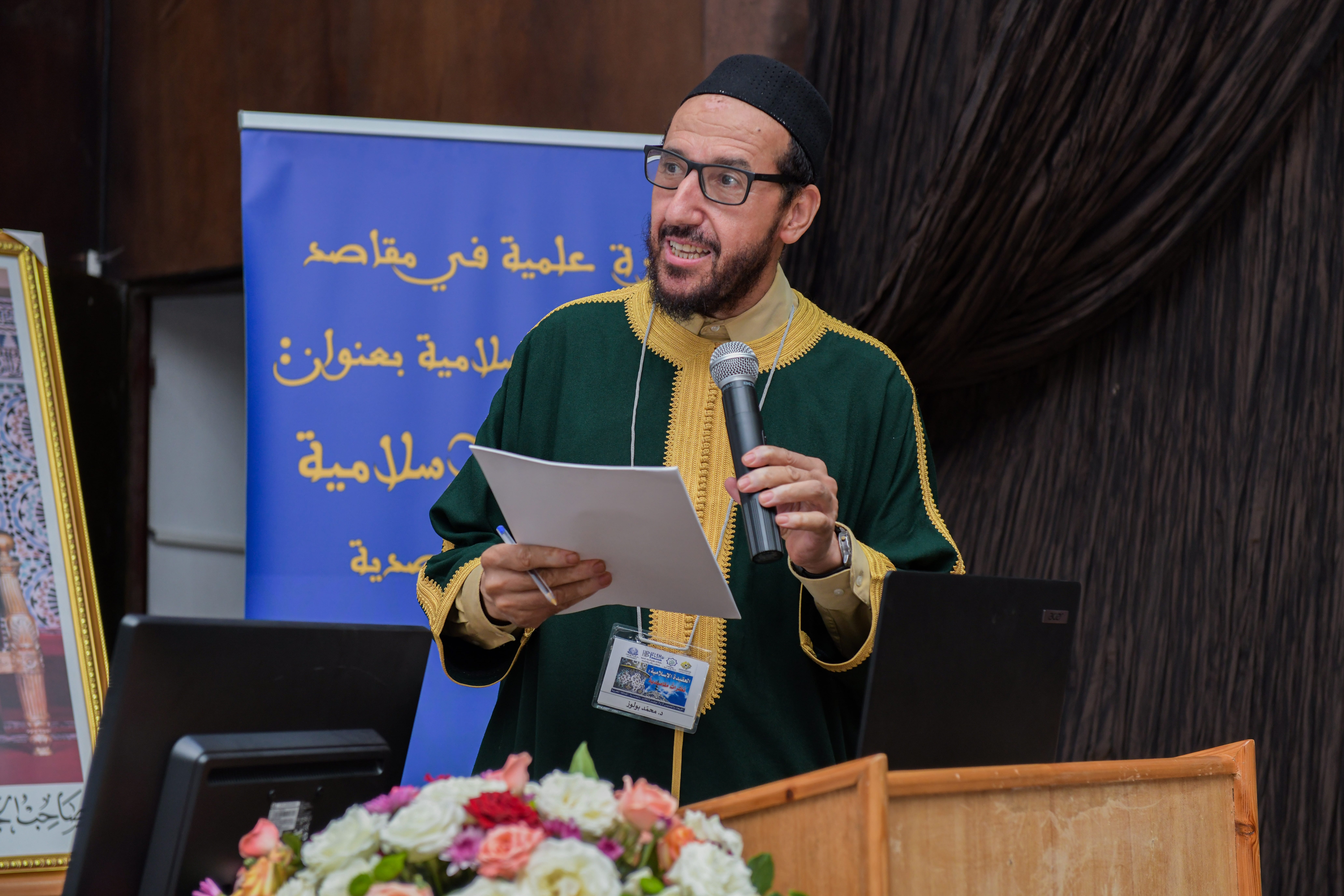
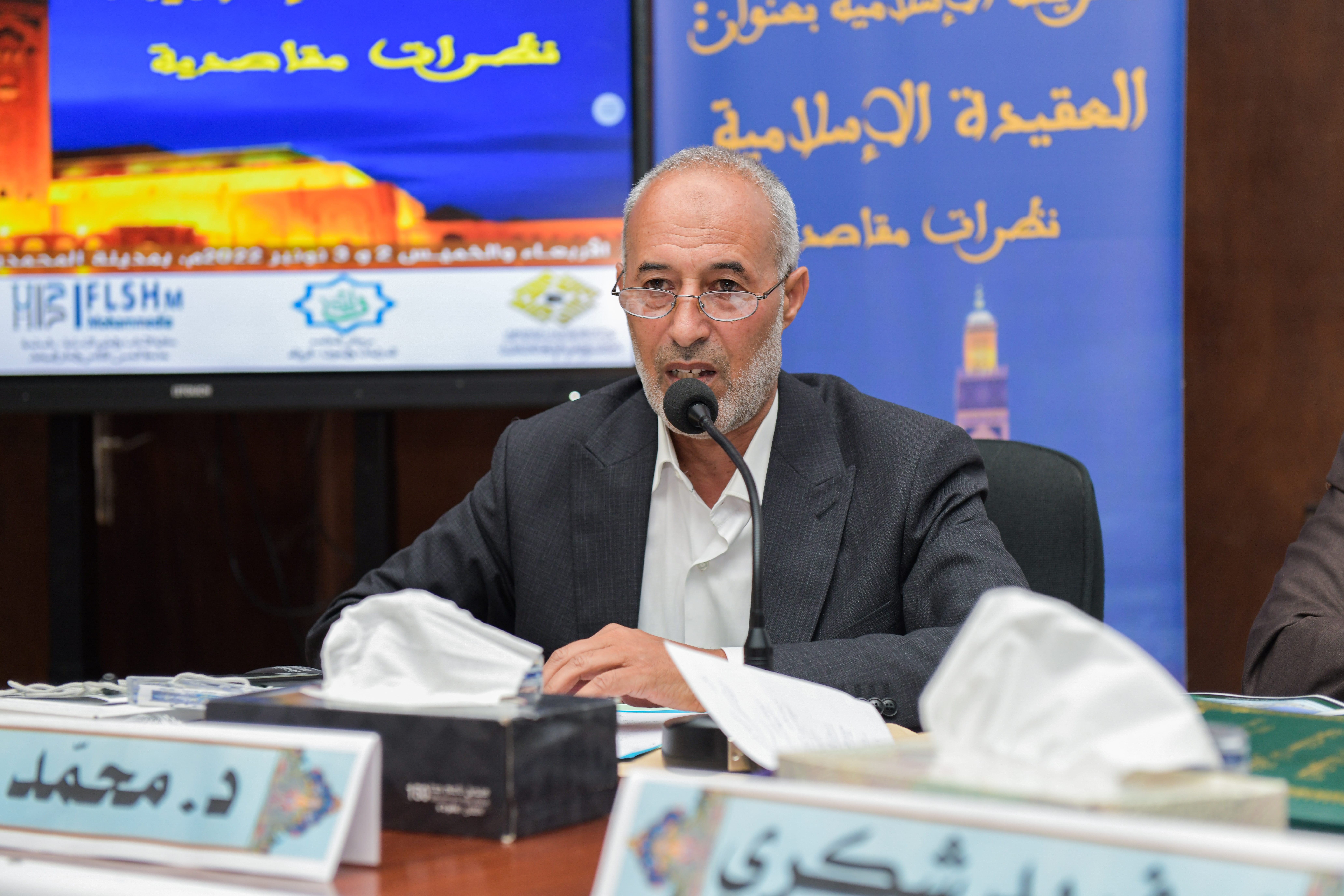
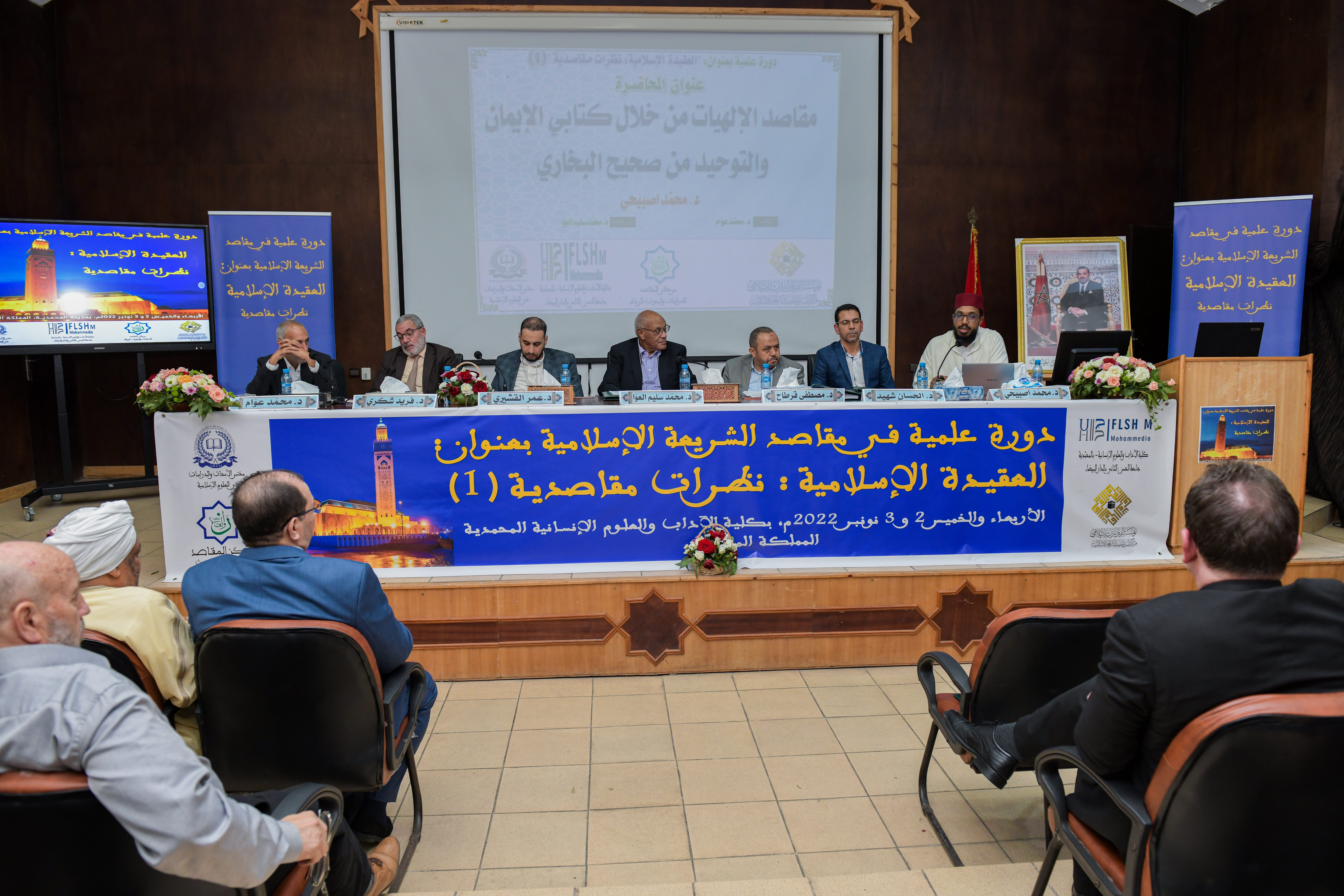
Second Day: Thursday, 3 November 2022
The second session, chaired by Dr Issam al-Bashir, opened with the paper “The objectives of creed between Abū al-Walīd Ibn Rushd and Najm al-Dīn al-Ṭūfī al-Ḥanbalī: Comparison of the two methodologies” by Dr Hamza al-Nhiri. This paper tackled the topic of creed from two distinct perspectives, both sharing the keen interest in the objectives of creed, but distinguished by their juristic and theological doctrinal stances. The paper comprised four areas of inquiry: first, the question of the objectives in the creed lesson; secondly, the objectives of creed in the text of Ibn Rushd; thirdly, the researcher addressed the manifestations of the objectives of creed in the text by al-Ṭūfī; fourthly, the researcher tackled the objectives of creed by both imams, and ways by which they may be exploited in the lesson of contemporary creed , with a summary of areas of enquiry and recommendations.
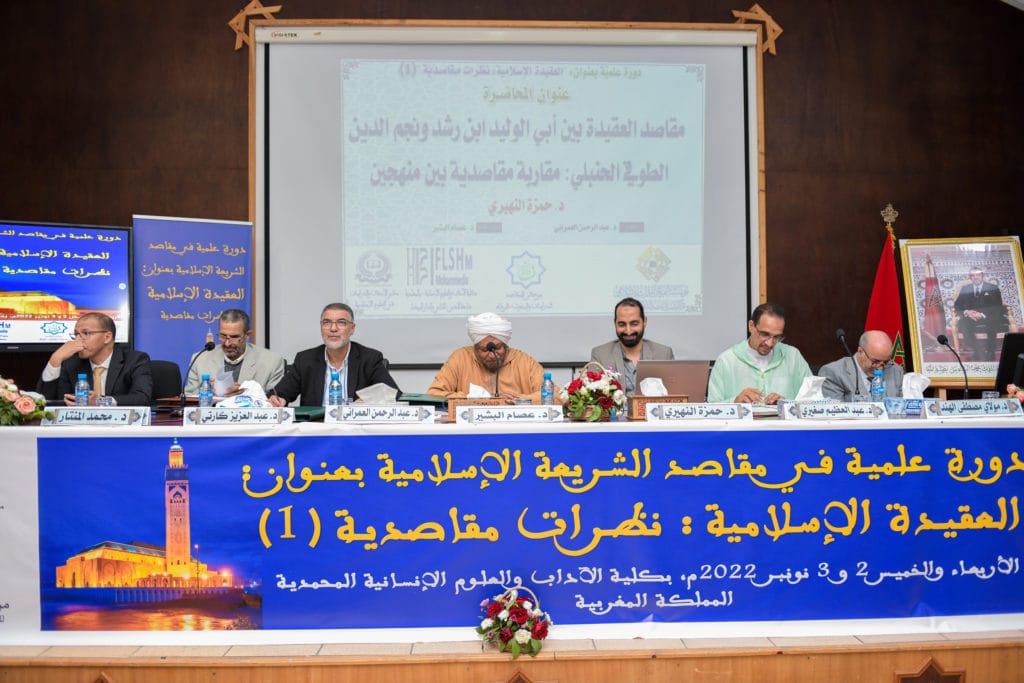
Dr Abdel Rahman al-Amrani commented on the paper. He began by demonstrating the importance of the paper in terms of its harmony with the topic of the training course. Moreover, in striving to uncover the objectives of creed from the perspectives of two eminent individuals in Islam, namely Ibn Rushd and al-Ṭūfī. The first is renowned as a jurist and philosopher, while the second is a legal theorist and theologian. The reviewer considered that the paper could have been more robust, and the conclusion more complete if its comparison had been drawn through their complete works, otherwise the paper's title would have to be narrowed in scope. He focused his commentary on highlighting the ideas presented in the paper, as well as the methodological aspect.
This was followed by Dr Abdel Azim al-Saghiri’s paper titled “the objectives of creed: from monotheism to unity: gauging the influence of unity in creed in ‘Ḥallāl al-‘uqad’ by al-Ṭūfī”. He began his paper with an introduction explaining the intent of the study in presenting an objectives-based view into the dimensions and aims that creed seeks to achieve, through fine examination of the universal objectives derived from the higher chapters of creed. He followed that with many points or secondary titles, discussing the topic extensively and in detail, where he addressed those studies related to the topic.
Dr Abdel Aziz Karti commented on the paper, pausing at the title “…from monotheism to unity”, considering that this is a general principle, given that the invitation to Islam is established on the principle of monotheism, belief, and unity; inspection of the verses of the Noble Qur’ān find that these called to this.
Subsequently, Dr Moulay al-Mustapha al-Hind presented his paper, titled “The methodology of Imām Abū Bakr al-Biqā‘ī on elucidating the creed objectives of the Noble Qur’ān chapters through his book, “Masā‘id al-naẓar li al-ishrāf ‘alā maqāṣid al-suwar”. Dr al-Hind mentioned in the introduction that the aim of this paper was to contribute to elucidate the methodology of Imām Abū Bakr al-Biqā‘ī. He divided the paper into two main parts; the first regarding the methodology of Imām al-Biqā‘ī between “Naẓm al-durrar” and “Masā‘id al-naẓar”.
Dr Mohammad al-Mintar commented on the paper, emphasising that Dr Moulay al-Mustapha al-Hind has built his paper on a strict methodology, where he explained that the methodology of Imām Burhān al-Dīn al-Biqā‘ī, in elucidating the objectives of the creed of the chapters of the Noble Qur’ān, is a methodology established on simplification in derivation, and selective construction of ideas.
These papers and commentaries were followed by discussion.
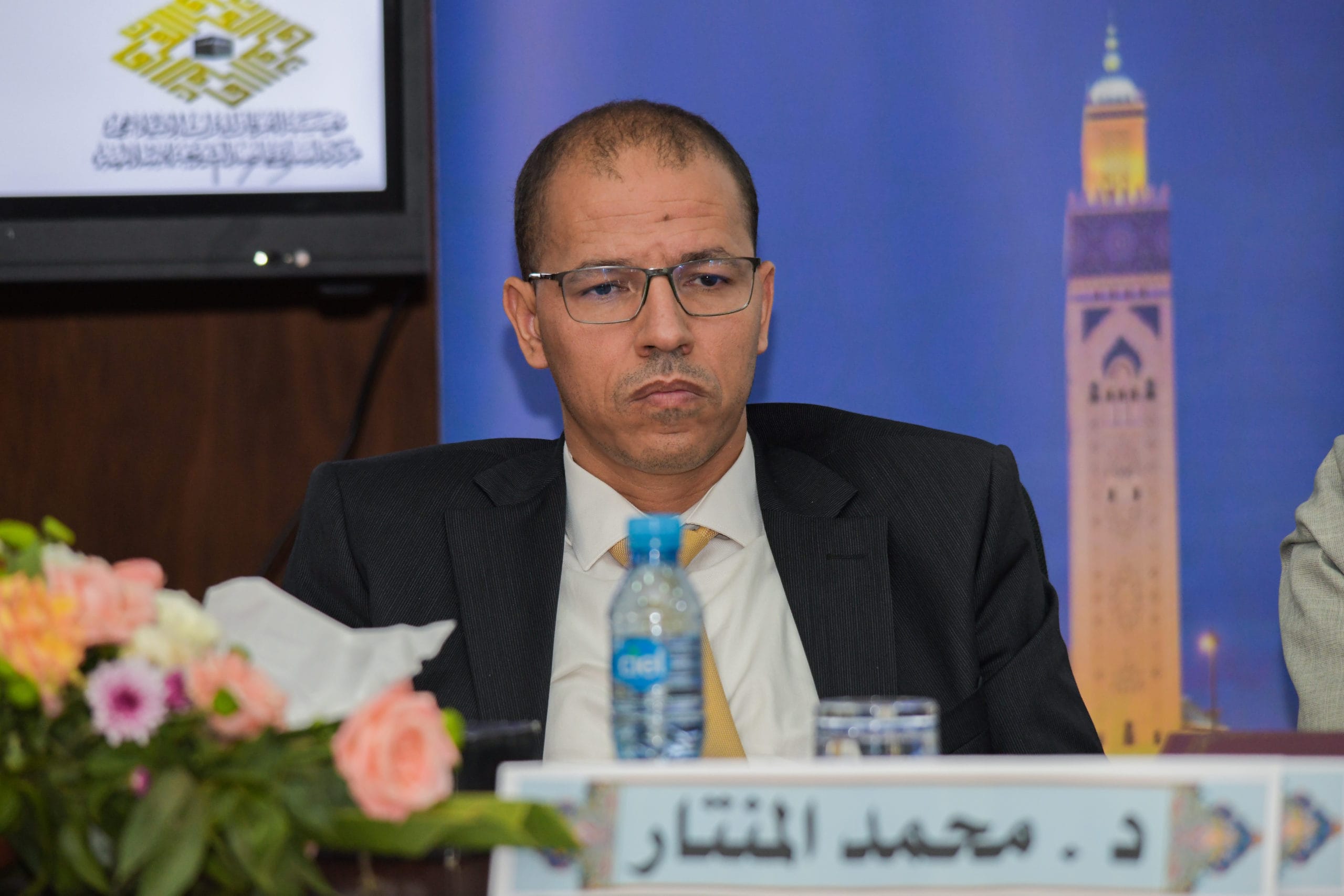
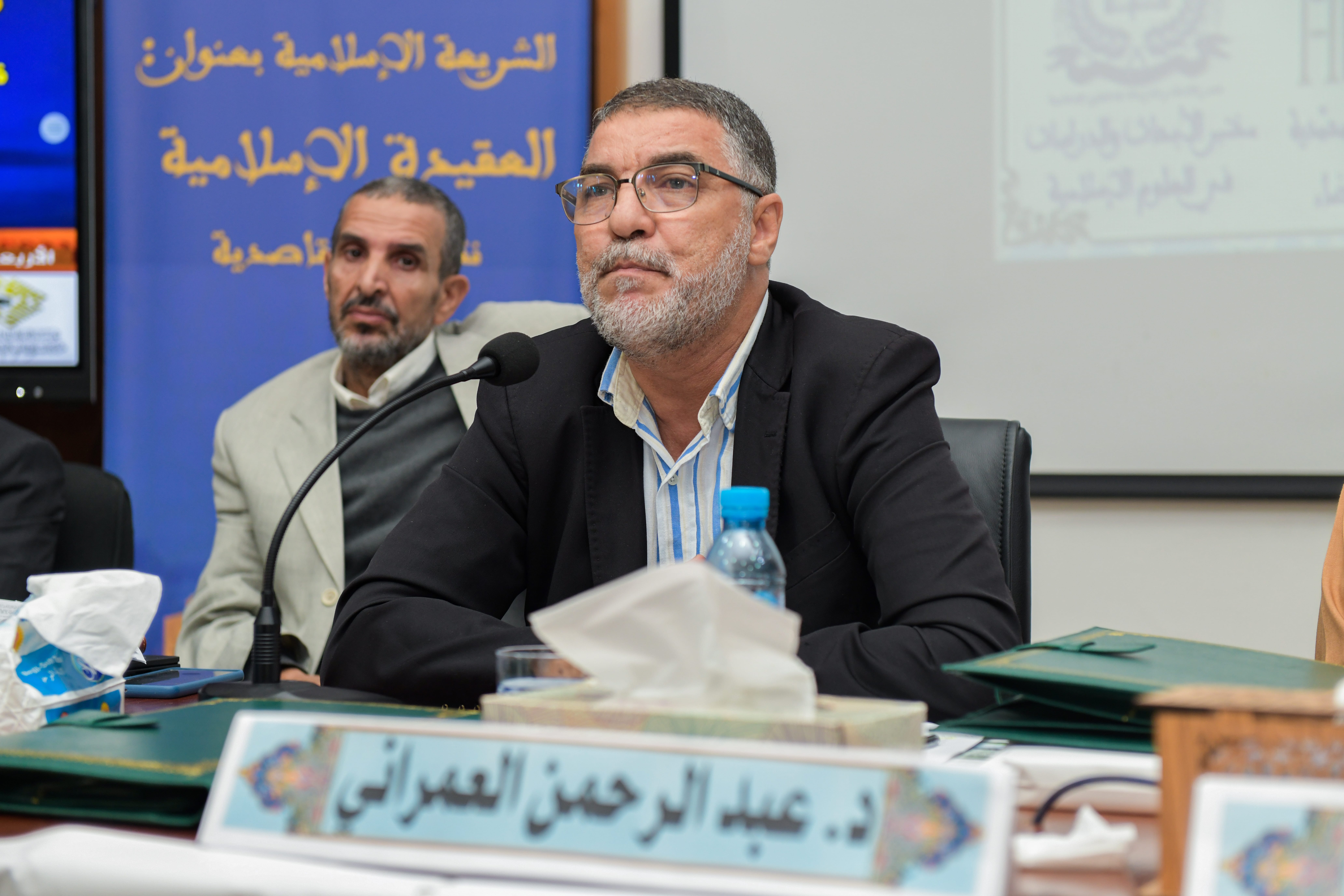
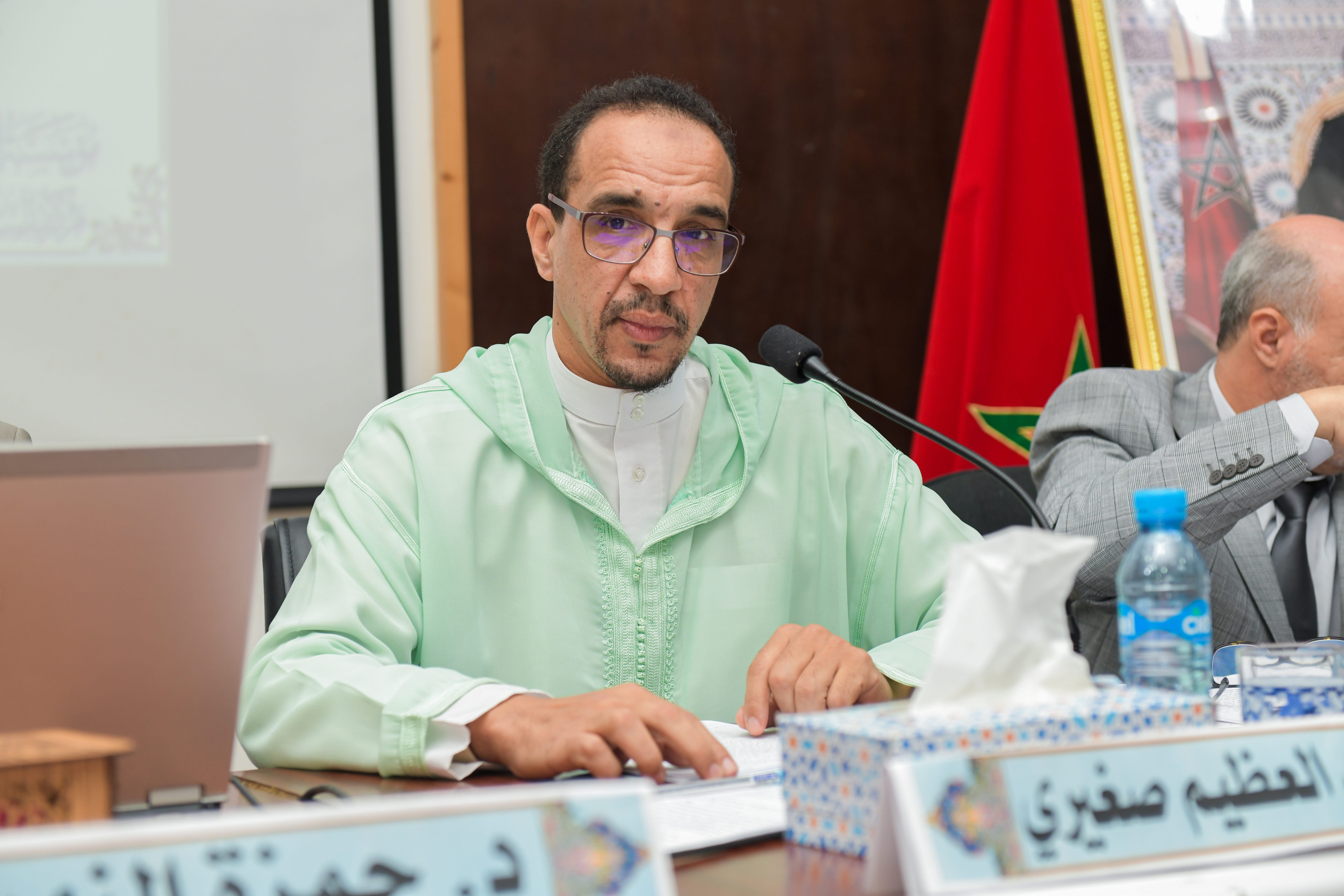
Third session chaired by Dr Ahmad Kafi
The session began with the paper by Dr Abdel Nour Baza, titled “The objectives of Allāh’s Beautiful Names and Noble Attributes: A study of the principles, rules, and applications”. The paper was organised into an introduction and three sections. In the introduction, he spoke of scholars’ fear of entering the domain of the Names of Allāh confessing that it is a challenging position to be in.
In the first section, he discussed what the objectives were, while dedicating the second to principles of examination and the rules on speaking about the objectives of Allāh’s Beautiful Names and Noble Attributes. In the third section, he tackled the objectives of Allāh's Beautiful Names and Noble Attributes.
Dr al-Hasan al-Sarrat commented on the paper, noting that the paper suffered ambiguity between principles and rules, confusing them. He mentioned that Dr Baza did not introduce the reader to the essence of this greatest topic being tackled. Indeed, he expressed his fear of delving into it, like Ḥujjat al-Islām. The reviewer criticised the researcher for lack of awareness of the places in the Qur’ān of the verses related to Allāh’s Noble Names.
Subsequently, Dr al-Hasan Hamma presented his paper, “The social objectives of creed in modern Islamic thought: an introduction to its formative epistemological framework”. He began his introduction by explaining the motives for addressing this topic. He considered that the social dimensions of the questions of creed had been deactivated, leading to concealing its objectives and effects from human reality.
The researcher divided the topic into two areas of enquiry. In the first, he tackled the modern trends that are the foundation of the social dimensions of creed. In the second, he addressed the social objectives of the creed.. He concluded his paper in that the higher objective is to secure good for the human being, his rectitude, and adherence to the commands and prohibitions of Allāh.
Dr Ahmad Nasri commented on the paper; first, presenting the key ideas covered by the researcher. He followed by reviewing the content, where he undertook an almost comprehensive review of the literature that adopted the idea of the paper, or covered some issues and topics in passing, in an attempt to renew the methodology of research in contemporary Islamic thought.
Dr Hudhaifa Akkash then presented his paper, “The objectives of creed in unifying the Islamic nation, and reviving its civilisational authority”. The paper was organised into an introduction and a number of areas of enquiry. In the introduction, he revealed the importance of the paper in that it is an evidence-based scientific grounding the methodology focusing on the certainties (qaṭ‘īyyāt) of creed. The first area of enquiry dealt with the features of renewal (tajdīd) in the science of creed, so as to contribute to unity of creed and civilisational authority. The second area of enquiry covered the role of the pillars of faith (arkān al-īmān) in unifying the Islamic nation’s articles of creed.
The third area of enquiry was dedicated to the role of the objectives of creed in stimulating the creed of the Islamic nation. Finally, the fourth area of enquiry addressed the role of creed in the seen world in returning Muslims to civilisational authority.
Dr Mahmoud al-Naffar commented on the paper, beginning by highlighting the importance of the study of monotheism in light of the objective of unity of the Muslim nation, followed by the novel aspects presented by the researcher. He then made some methodological and scientific remarks on the paper, including that the researcher had made belief in the seen world counterpart to belief in the unseen world. The reviewer considered that this perspective is not typically found in Islamic heritage .
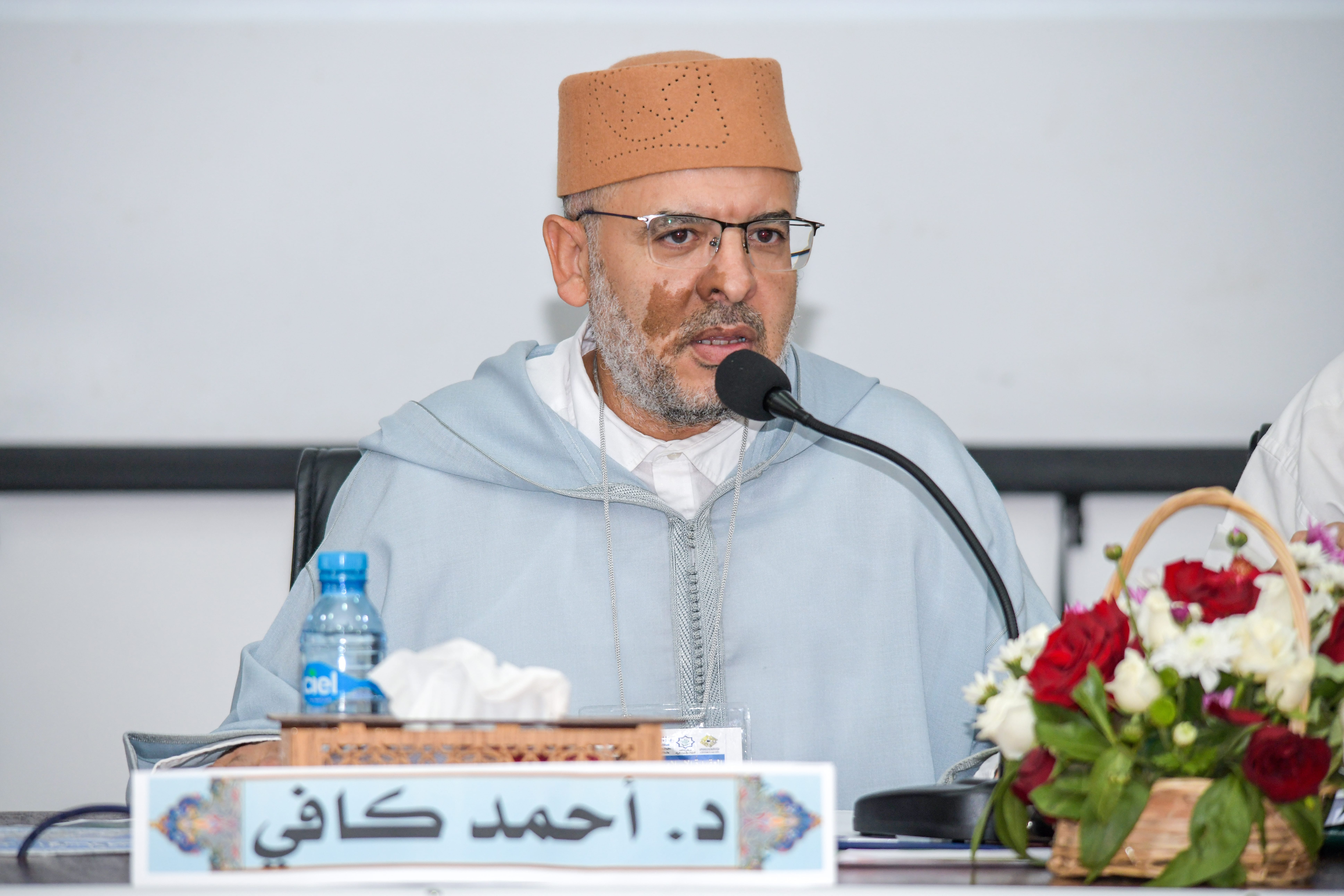
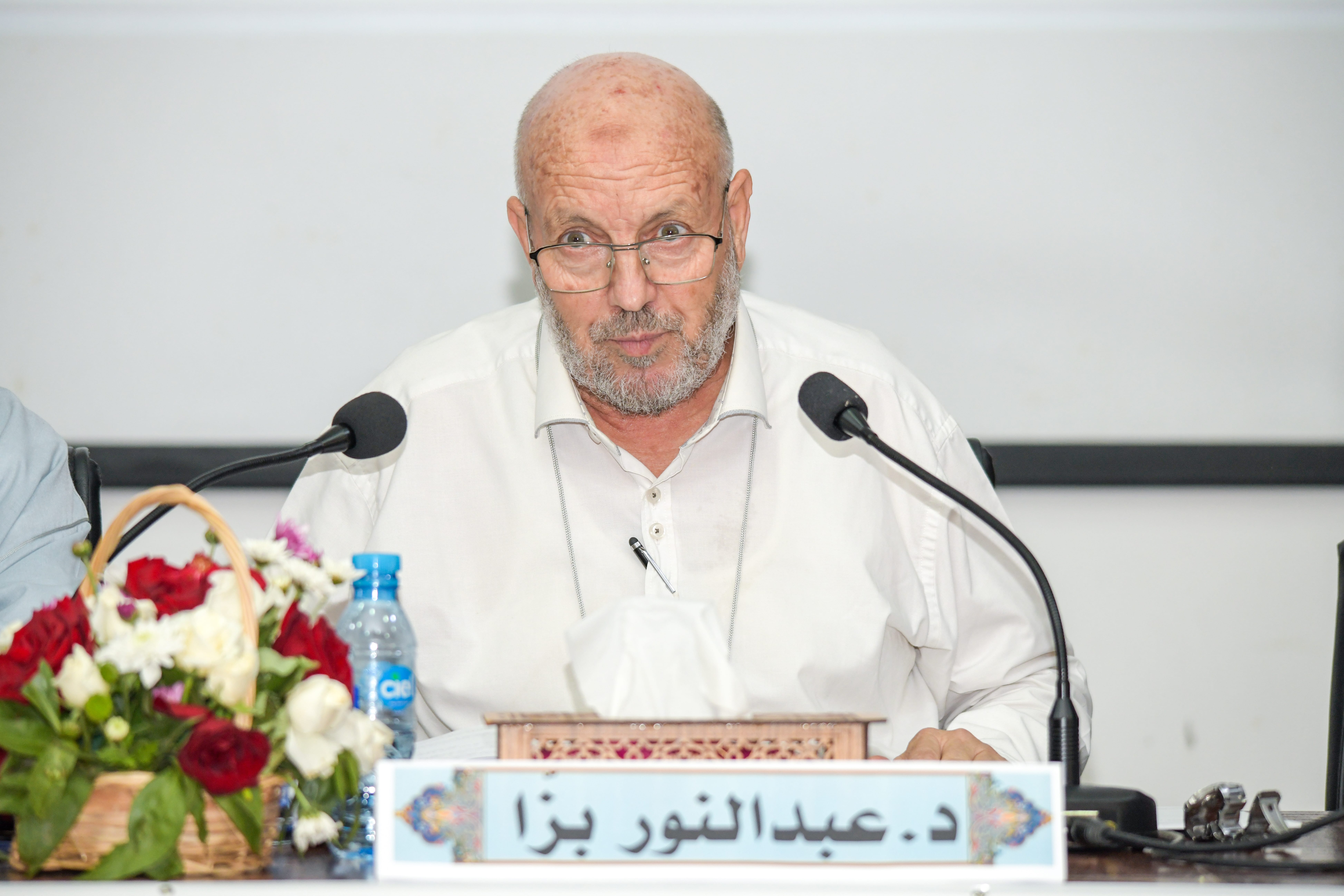
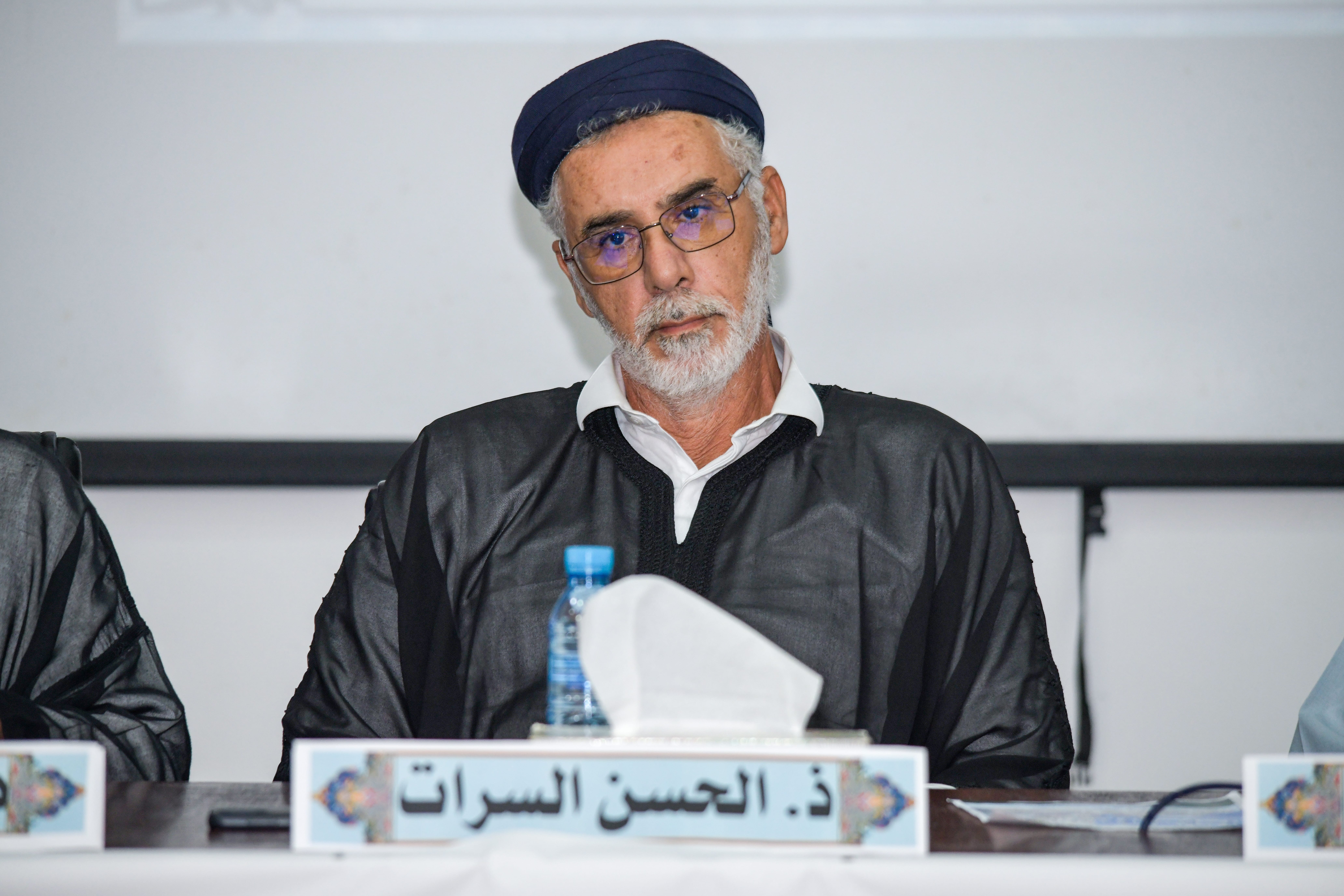
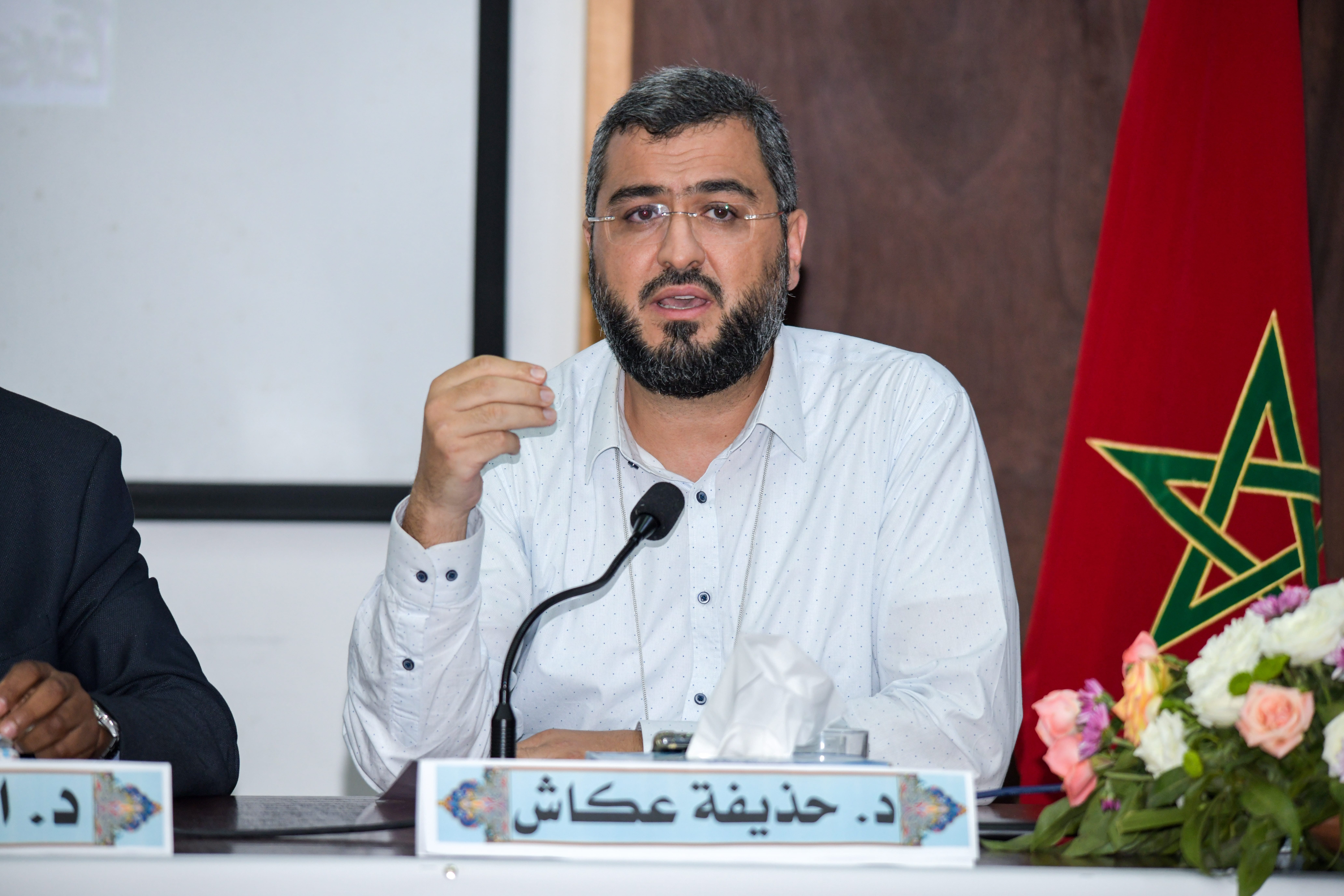
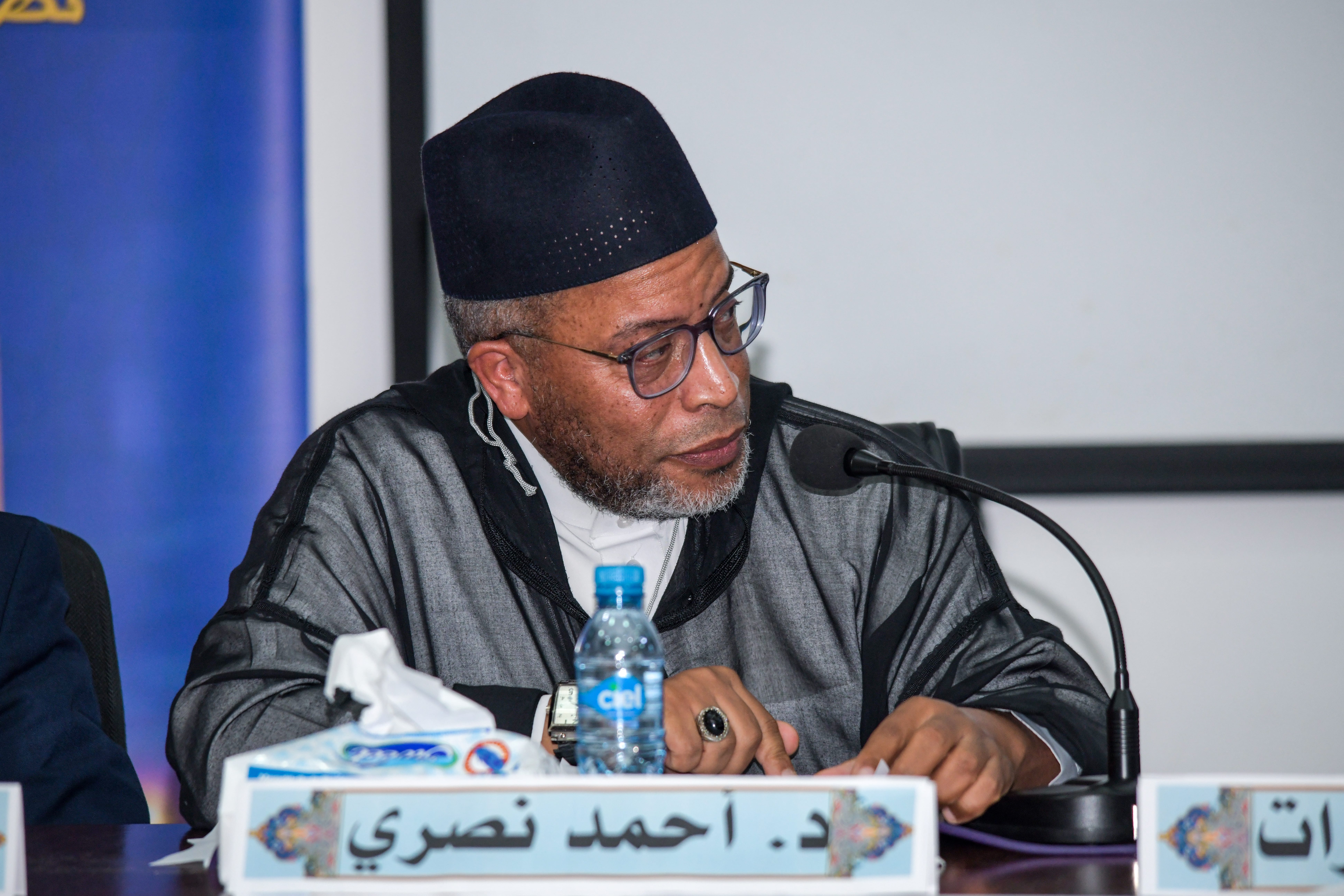
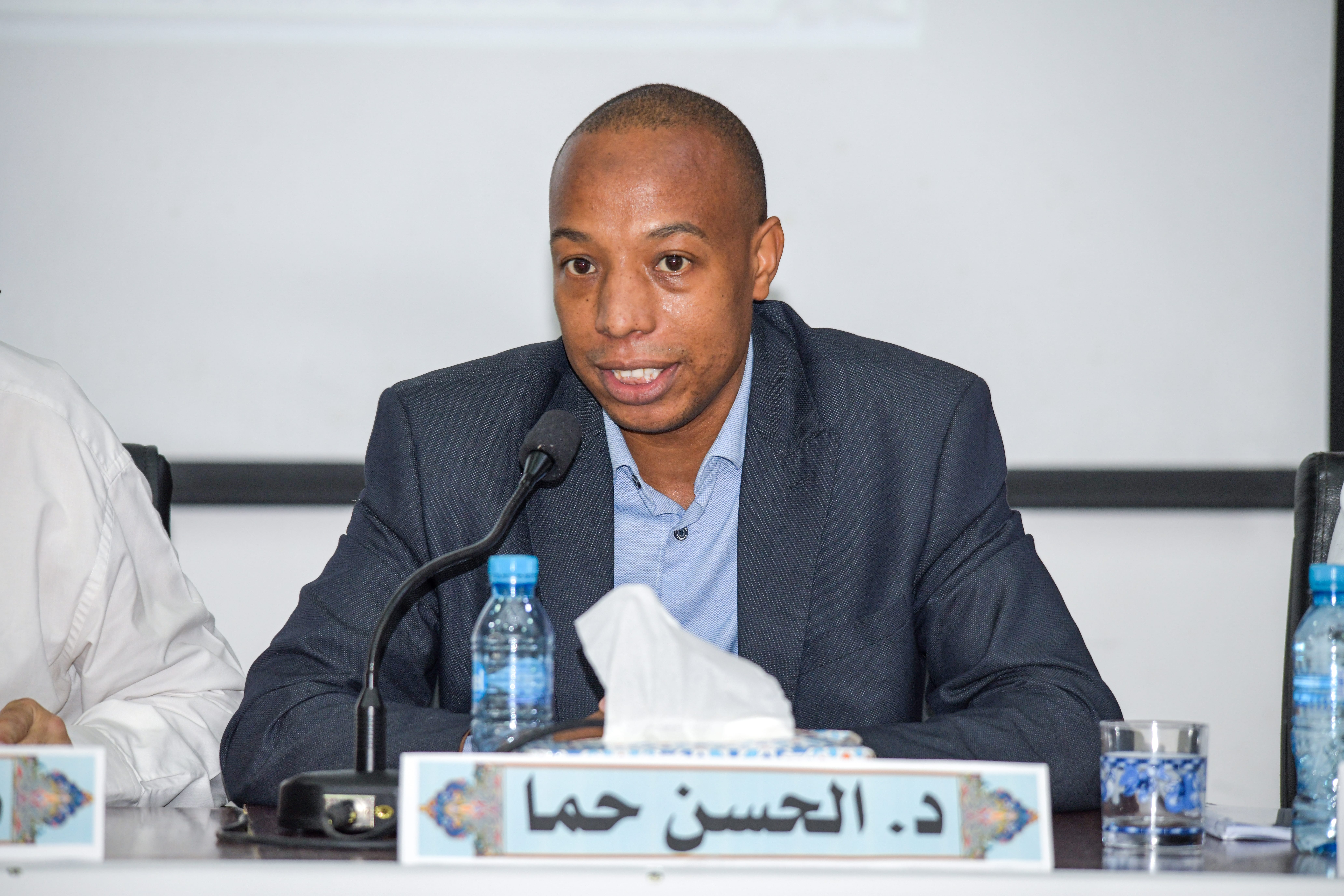
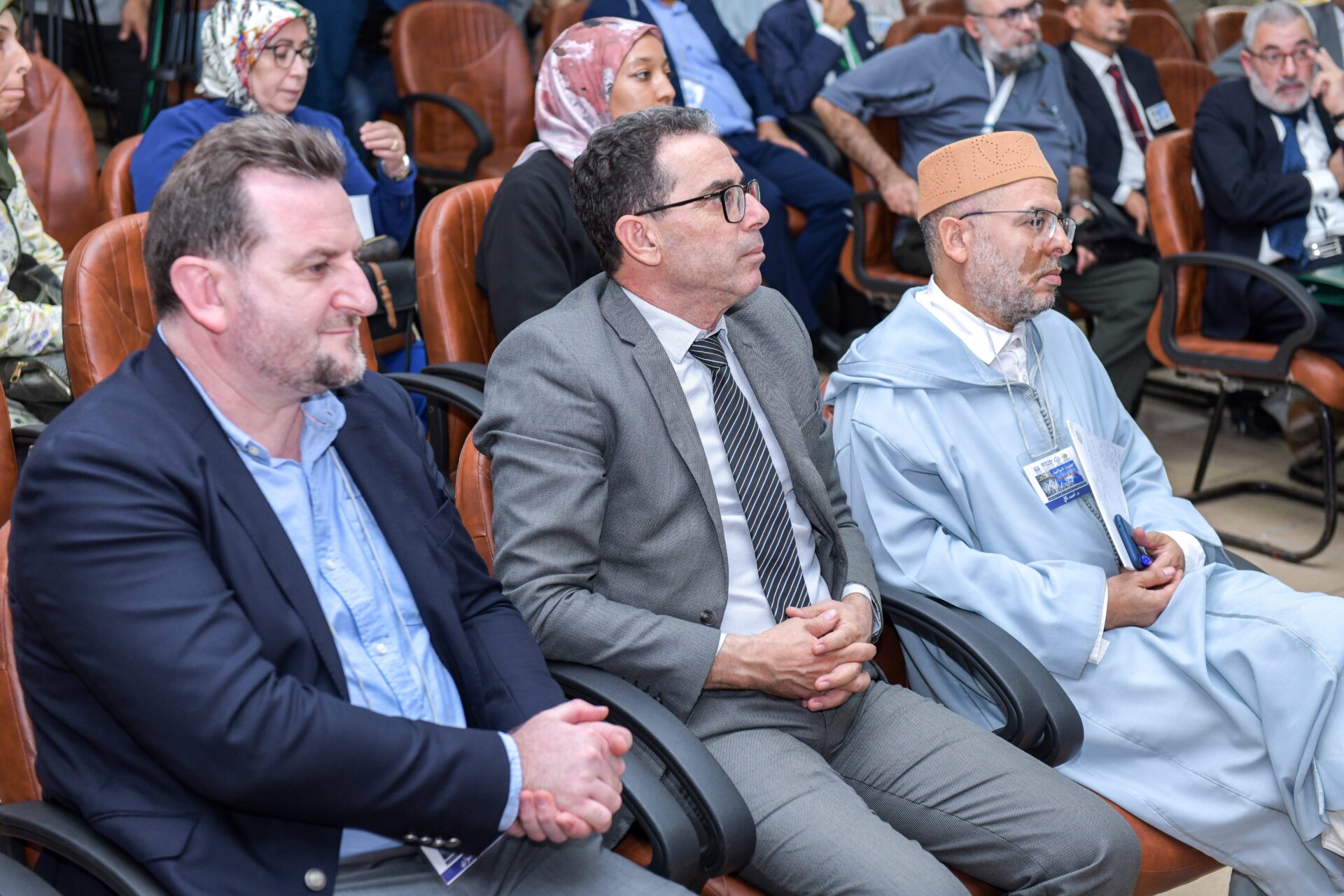
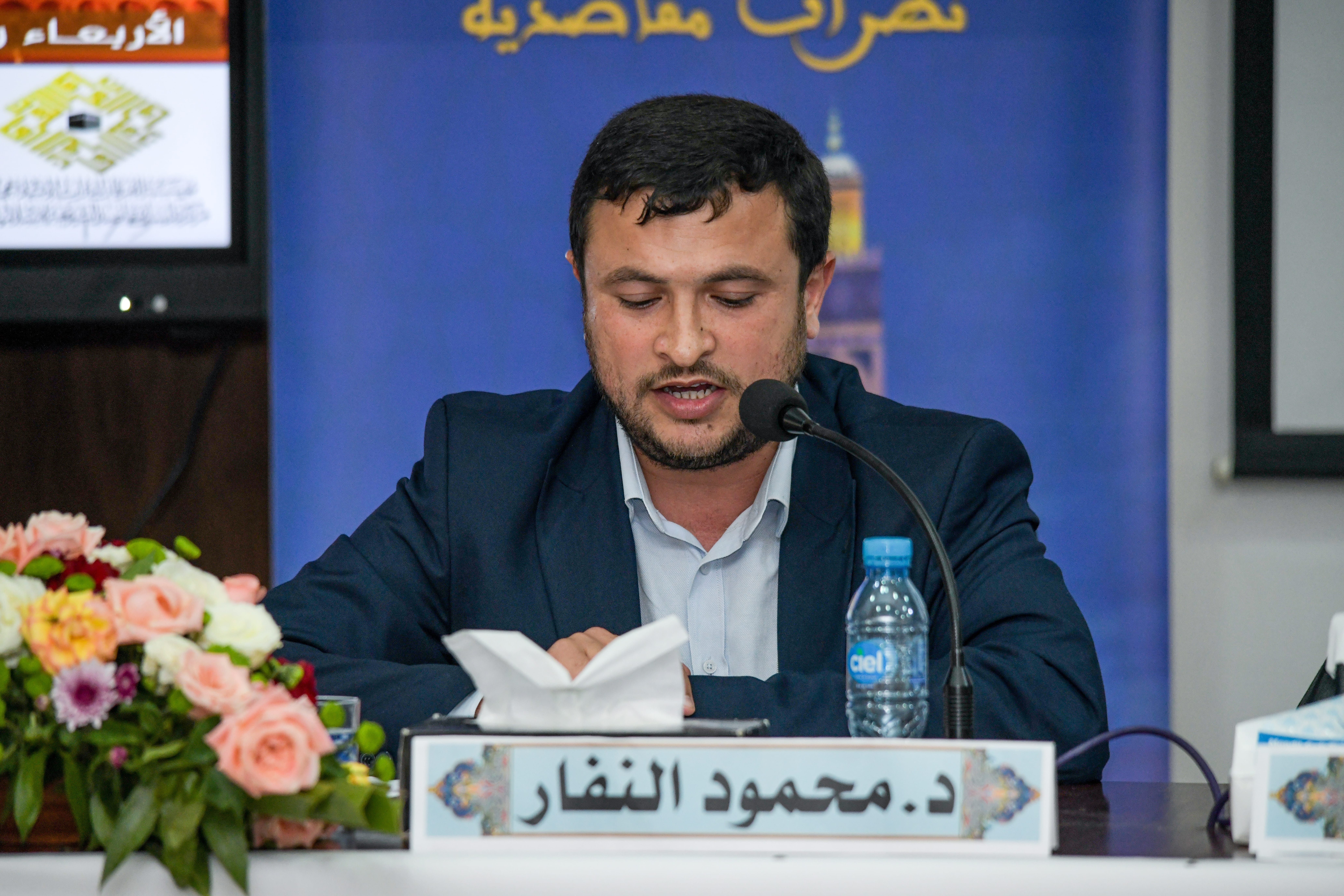
Closing session chaired by Dr Mohammed Drioueche
Closing session
In this session, Dr Mohammed Drioueche, Head of Projects & Publications at Al-Furqān Foundation, Dr Moulay al-Mustapha al-Hind, Dr Issam al-Bashir, and Dr al-Husayn al-Mous, Deputy-Director of the Maqasid Research & Studies Centre, addressed the audience. The training course concluded with a reading of the recommendations.
The training course closed with Mr. Moulay al-Hassan Al-Barhoumi reciting illuminating verses from the Glorious Qur’ān.
